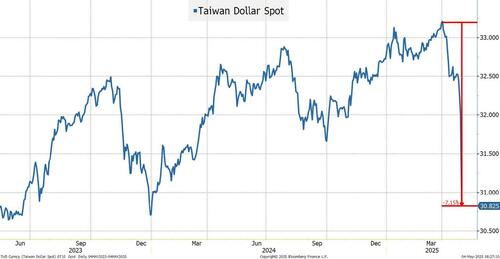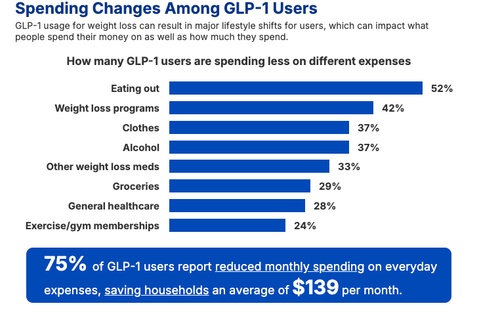For many people today, practical atheism is the normal rule of life...If this attitude becomes a general existential position, then freedom no longer has any standards, then everyting is possible and permissible.
Distinction Matter - Subscribed Feeds
-
Site: Zero HedgeTrump Orders Alcatraz Reopened For "America's Most Ruthless And Violent Offenders"Tyler Durden Sun, 05/04/2025 - 21:35
President Trump on Sunday said that he's ordering the reopening of Alcatraz Federal Penitentiary - the historic prison located in the middle of the San Francisco Bay that closed over six decades ago.
"For too long, America has been plagued by vicious, violent, and repeat Criminal Offenders, the dregs of society, who will never contribute anything other than Misery and Suffering. When we were a more serious Nation, in times past, we did not hesitate to lock up the most dangerous criminals, and keep them far away from anyone they could harm," Trump said on Truth Social.
"That’s the way it’s supposed to be. No longer will we tolerate these Serial Offenders who spread filth, bloodshed, and mayhem on our streets. That is why, today, I am directing the Bureau of Prisons, together with the Department of Justice, FBI, and Homeland Security, to reopen a substantially enlarged and rebuilt ALCATRAZ, to house America’s most ruthless and violent Offenders," he continued.
Located 1.25 miles offshore from San Francisco, Alcatraz Island was purchased in 1846 for $5,000 - after which President Fillmore ordered it turned into a military reservation in 1850. In 1859 it was used to house soldiers convicted of crimes, transitioning into the official military prison for the US Army's Department of the Pacific.
In 1933 the US Department of Justice assumed control of the complex and designated Alcatraz a federal prison the next year - where it housed notorious criminals for the next 29 years, including Al Capone, Doc Barker, and Machine Gun Kelly. It was shuttered in 1963 over high operational costs and building corrosion caused by half a century of being located on an island exposed to saltwater and salt-laden air.
"Both the institution and the men confined within its walls reflect our society during this era," reads the National Park Service's webpage about the prison, also known as The Rock.
According to Trump, the reopening of Alcatraz is going to "serve as a symbol of Law, Order and JUSTICE."
-
Site: Zero HedgeSupreme Court's Ketanji Jackson Says Criticizing Judges Is 'Attack On Democracy'Tyler Durden Sun, 05/04/2025 - 20:25
People who criticize activist judges (who often refuse to recuse themselves amid wide-ranging conflicts of interest while ruling against Donald Trump's agenda) are 'attacking democracy,' according to US Supreme Court Justice Ketanji Brown Jackson.
 Supreme Court Justice Ketanji Brown Jackson speaks in Birmingham, Ala., on Sept. 15, 2023. Butch Dill - Pool/Getty Images
Supreme Court Justice Ketanji Brown Jackson speaks in Birmingham, Ala., on Sept. 15, 2023. Butch Dill - Pool/Getty Images
On May 1, Jackson - who was apparently referring to recent comments by Donald Trump, though not specifically naming him - told an audience at the First Circuit Judicial Conference in Rio Grande, Puerto Rico, "The attacks are not random. They seem designed to intimidate those of us who serve in this critical capacity."
"The threats and harassment are attacks on our democracy, on our system of government. And they ultimately risk undermining our Constitution and the rule of law," the Biden appointee continued, referring to "the elephant in the room."
As the Epoch Times notes further, several federal judges have said the Trump administration has not complied with various court orders on federal spending, the firing of government employees, and foreign aid. The administration denies that it disobeyed the orders and has criticized judges who have halted its policy actions, in some cases calling for the judges to be impeached.
Jackson’s comments followed a public statement by Chief Justice John Roberts on March 18 after Trump called for the impeachment of U.S. District Judge James Boasberg, who was confirmed in 2011 after being nominated by President Barack Obama.
Boasberg issued orders forbidding the deportation of alleged Venezuelan gang members under the Alien Enemies Act and then said the Trump administration disobeyed those orders. The Trump administration denies it flouted the orders and said some deportation flights had already left U.S. airspace before the initial written order was issued.
“For more than two centuries, it has been established that impeachment is not an appropriate response to disagreement concerning a judicial decision,” Roberts said in a statement provided to The Epoch Times. “The normal appellate review process exists for that purpose.”
Later that month, Rep. Andy Biggs (R-Ariz.) introduced a resolution in the House to impeach Boasberg.
“We cannot stand by while activist judges who incorrectly believe they have more authority than the duly-elected President of the United States, impose their own political agenda on the American people,” Biggs said in a statement on March 31.
Meanwhile, the Supreme Court is scheduled on May 15 to hear oral arguments on lower court orders blocking Trump’s policy of limiting birthright citizenship for certain individuals.
Trump’s Executive Order 14160, signed on Jan. 20, states that “the Fourteenth Amendment has never been interpreted to extend citizenship universally to everyone born within the United States.”
In the court filings, the Department of Justice did not ask the Supreme Court to rule on the constitutionality of the executive order itself, although it acknowledged that the birthright citizenship question raises “important constitutional questions with major ramifications for securing the border.”
Instead, the department made what it called a “modest” request to contain the coverage of court injunctions within the parties in the lawsuits.
“While the parties litigate weighty questions, the Court should ‘restrict the scope’ of multiple preliminary injunctions that ‘purport to cover every person ... in the country,’ limiting those injunctions to parties actually within the courts’ power,” it wrote.
Nationwide injunctions, also known as non-party or universal injunctions, set policy for the entire country. Such injunctions issued by judges have become controversial in recent years as they have become increasingly common.
On April 9, the House passed a bill on a 219–213 vote in an attempt to curb the barrage of district court rulings that have blocked or delayed Trump’s executive actions on multiple fronts.
Wielding national injunctions in that way “undermines the system of government,” the bill’s sponsor, Rep. Darrell Issa (R-Calif.), said on the House floor on April 8.
Sam Dorman contributed to this report.
-
Site: RT - News
Francesca Albanese has insisted the bloc official as well top diplomat Kaja Kallas “will have to be judged“
The EU leadership should be held accountable for supporting Israel’s “war crimes” in Gaza, UN Special Rapporteur on the Occupied Palestinian Territories Francesca Albanese has said.
In an interview with The Intercept published on Saturday, Albanese singled out European Commission President Ursula von der Leyen and the EU’s top diplomat Kaja Kallas.
“The fact that the two highest figures of the EU continue business-as-usual engagements with Israel is beyond deplorable,” she said.
“I’m not someone who says, ‘History will judge them’ – they will have to be judged before then. And they will have to understand that immunity cannot equate with impunity,” the UN expert added.
Albanese said she has been working on a report exposing the role of institutions and organizations – including banks, pension funds, tech companies, and universities – in crimes against the Palestinian population of Gaza.
“All those implicated and involved in the unlawful occupation, in providing it with support, are aiding and abetting violations of international law and human rights violations, and a number of these amount to crimes,” Albanese said. “There can be individual responsibility and individual liability for those who have been aiding and abetting or enabling such crimes.”
Read more Israel insists ‘no chance’ of long-term truce with Hamas – media
Israel insists ‘no chance’ of long-term truce with Hamas – media
Albanese has repeatedly urged von der Leyen to use her powers as head of the EU executive to stop the “genocide” in Gaza. She also criticized Kallas for not pressuring Israel to end its military operation during her visit to Tel Aviv in March, when the diplomat said “both sides lose” in the conflict.
“A shocking low for the EU: one of its top leaders stands with Israel’s foreign minister, representing a state responsible for killing 50,000 people (in 16 months), 70% women and children, with Western-made weapons,” Albanese wrote on X at the time.
The UN official claimed she and her family have faced death threats since she released a report in March 2024, insisting that Israel’s actions should be classified as genocide.
European Commission spokeswoman Gioia Franchellucci told The Intercept that Brussels was committed to international law, and that the bloc’s relationship with Israel allows officials to express their “positions and concerns.”
“The association agreement with Israel is the legal basis of our ongoing dialogue with the Israeli authorities, and it provides mechanisms to discuss issues and advance our points of view,” the spokeswoman said.
West Jerusalem launched its operation in Gaza following a surprise attack by Hamas on October 7, 2023, during which militants killed around 1,200 Israelis and took around 250 hostages. Over 52,000 Palestinians have been killed since the conflict broke out, according to the enclave’s health authorities.
-
Site: RT - News
Francesca Albanese has insisted the bloc official as well top diplomat Kaja Kallas “will have to be judged“
The EU leadership should be held accountable for supporting Israel’s “war crimes” in Gaza, UN Special Rapporteur on the Occupied Palestinian Territories Francesca Albanese has said.
In an interview with The Intercept published on Saturday, Albanese singled out European Commission President Ursula von der Leyen and the EU’s top diplomat Kaja Kallas.
“The fact that the two highest figures of the EU continue business-as-usual engagements with Israel is beyond deplorable,” she said.
“I’m not someone who says, ‘History will judge them’ – they will have to be judged before then. And they will have to understand that immunity cannot equate with impunity,” the UN expert added.
Albanese said she has been working on a report exposing the role of institutions and organizations – including banks, pension funds, tech companies, and universities – in crimes against the Palestinian population of Gaza.
“All those implicated and involved in the unlawful occupation, in providing it with support, are aiding and abetting violations of international law and human rights violations, and a number of these amount to crimes,” Albanese said. “There can be individual responsibility and individual liability for those who have been aiding and abetting or enabling such crimes.”
Read more Israel insists ‘no chance’ of long-term truce with Hamas – media
Israel insists ‘no chance’ of long-term truce with Hamas – media
Albanese has repeatedly urged von der Leyen to use her powers as head of the EU executive to stop the “genocide” in Gaza. She also criticized Kallas for not pressuring Israel to end its military operation during her visit to Tel Aviv in March, when the diplomat said “both sides lose” in the conflict.
“A shocking low for the EU: one of its top leaders stands with Israel’s foreign minister, representing a state responsible for killing 50,000 people (in 16 months), 70% women and children, with Western-made weapons,” Albanese wrote on X at the time.
The UN official claimed she and her family have faced death threats since she released a report in March 2024, insisting that Israel’s actions should be classified as genocide.
European Commission spokeswoman Gioia Franchellucci told The Intercept that Brussels was committed to international law, and that the bloc’s relationship with Israel allows officials to express their “positions and concerns.”
“The association agreement with Israel is the legal basis of our ongoing dialogue with the Israeli authorities, and it provides mechanisms to discuss issues and advance our points of view,” the spokeswoman said.
West Jerusalem launched its operation in Gaza following a surprise attack by Hamas on October 7, 2023, during which militants killed around 1,200 Israelis and took around 250 hostages. Over 52,000 Palestinians have been killed since the conflict broke out, according to the enclave’s health authorities.
-
Site: Public Discourse
Recent polarized battles over education draw attention to an underlying problem: the persistent orientation of teacher preparation programs toward relativism and away from truth. Teacher education should affirm objective reality and reject critical and relativist frameworks, including the Marxist-materialist worldviews that have been so rampant in recent decades. Personalist philosophy offers a compelling alternative to critical and subjectivist philosophies of education through its consistent articulation of the dignity and value of the human person.
Traditional preparation for teachers, who need state certification or licensure in most situations, generally involves university coursework and assessments like licensure examinations. This coursework should incorporate current theories of human development, family engagement, instruction, and pedagogy. Often, the coursework in such programs reproduces less rigorous versions of critical theory without encouraging or requiring future teachers to grapple with the philosophical implications of that theory. Treatment in education programs may lack the theoretical orientation of a true critical approach, replacing primary readings from Foucault and Fanon with classroom-based examples. But teacher candidates are still left to piece together on their own the relationship between critical approaches and generally accepted principles of logic and reason.
For example, putting Pedagogy of the Oppressed, a staple in teacher preparation programs, into practice does not simply mean that lessons must be relevant and fun. (That position, incidentally, is not supported by evidence.) Rather, truly operationalizing Pedagogy of the Oppressed would involve pushing students to question the foundations of the current social order, interrogate authority, and embrace liberation even when it leads to revolution. It would demand that teachers prioritize alternative ways of knowing over principles of reason or evidence. Does the average teacher candidate understand the implication of those ideas when Freirian pedagogy is referenced? To understand the full implications and context of this thought might require a semester in an advanced political science seminar or, at minimum, acknowledgment that critical consciousness cannot be neatly put on a bulletin board.
Further, such preparation encourages teacher candidates to prioritize perceptions and feelings over reality. For example, one recent monograph opposing evidence-based reading instruction absurdly references the need for a “full and complementary satchel of . . . epistemologies.” Existing subjective paradigms emphasize the impossibility of consistent beliefs or truths. Such approaches reject the idea of evidence on which our scientific system is based, promoting “spiritual, social, and story-centered forms of knowledge” and “what Sandra Harding has called a strong objectivity that is reached with an eschewing of objectivity . . . and rather, a deep subjectivity.”
If we pull any thread of this subjectivist tapestry, it becomes easy to unravel the idea of reality itself. If all knowledge is socially constructed, then on what basis or by what authority does a teacher claim to provide any direction? What is the consistent principle we can use to mark any answer wrong if the student’s interpretation already aligns with his or her “lived experience”? It is, of course, easy to overgeneralize; helping students understand the real world often involves pushing them to reflect on personal experience. But taken to extremes, this thinking makes it impossible to prioritize truth and objectivity over feelings and experience. We see real-life downsides of this approach in mathematics curricula that prioritize “equity” and making students “feel heard” as well as in the controversy over balanced literacy, which led to generations of children who thought they could read because they “felt like” readers.
Critical theory–based approaches to teacher preparation are also rooted in materialist thinking, positioning students as cogs in a vast system of oppressive machinery that can be disrupted only through activism and political awakening. In this telling, the only way out is further adoption of a critical consciousness lens in order to organize and advocate social change to promote a specific ideological agenda. Social justice–oriented approaches feel helpful to educators insofar as they provide a vocabulary to discuss pressing problems such as poverty and discrimination. The worst excesses of industrialization and modernity—abuse of workers, world wars, and genocides—highlight shortcomings of our systems. But conceptualizing problems as political issues, rather than educational ones, leads us to search for political solutions in lieu of educational ones. Eliminating oppression necessarily requires “confronting the ideological frameworks, historical legacies, and institutional . . . practices” contributing to inequality.
According to one researcher, in social justice–oriented teacher preparation, teacher educators (that is, those who educate future teachers)
actively interact with the local sociopolitical context, . . . [disrupt] power relations in the classroom, . . . [and] challenge Eurocentric epistemologies by valuing lived experience, bodies, and practitioner knowledge in constructing knowledge.
Teacher educators prioritize this perspective, seeking a “shared, explicit, and consistent focus on teaching for social justice.” And teachers are further encouraged to move away from the objectivity required in scientific paradigms; according to one study, “[t]o teach for social justice involves shifting out of neutral, both in terms of a teacher’s orientation to social inequalities and of pedagogy.” There is little room in such framing for educators to seek truth through apolitical, ideologically neutral examination of achievement gaps and adoption of evidence-based practices.
Given the shortcomings of these common approaches to educator preparation, how should we prepare teachers instead, and what are the appropriate philosophical starting points for educators who believe in any kind of objective reality? These are important questions for teacher education programs but also for the field at large. One place to start is with the belief that some things are true and some things can be known—in other words, with thoughtful assent to the idea of objective reality. This includes acknowledging the epistemological tensions involved in the embrace of critical theory. It also involves a robust review of theories of knowledge and epistemology rather than the surface-level treatment of Piaget and Dewey that “foundations of education” courses often involve.
This conceptual orientation can and should lead to a renewed emphasis on rigorous research, including cognitive theory, developmental psychology, and the nature of evidence. In education, it is no longer a given that a large experimental or quasi-experimental study is the best way to identify effective practices. Rather, many researchers give equal or greater primacy to subjective analysis, narrative, first-person accounts, and descriptions of phenomena. While valuable to frame initial questions and guide exploration, these methods, by definition, cannot provide widely generalizable information about techniques or interventions that are effective at scale.
However, a renewed emphasis on objective reality and evidence may still suffer from a lack of a unifying philosophical framework. Teaching, a work that is deeply individual and relational, can best be understood in a framework that acknowledges the problems of our current society and bases solutions on individual dignity, more than conceptualization of overbearing and oppressive social structures. To meet this need, our field would be well served by a theoretical reorientation toward personalism, the philosophical movement oriented around the nature and dignity of the human person, rather than Marxism or a variant of critical materialism. Personalist thought has been around for centuries and was developed and expanded in the twentieth century. It is widely associated with Christian thinkers, including the late Pope John Paul II as well as Jacques Maritain, Soren Kierkegaard, Martin Luther King, Jr., and others. But the core idea of personalism—an emphasis on the primacy, dignity, and integrity of the human person—has applicability and value in secular contexts as well, and serves as a coherent and valuable organizing principle for educational theory and teacher education in particular.
As scholar Bennet Gilbert writes:
Personalism always begins its analysis of reality with the person at the centre of consciousness, to which it attaches the most profound worth. Some versions develop this through ontology or metaphysics; some, through theologies associated with most denominations of the Abrahamic religions; and some, through the intersubjective and communitarian nature of human life.
Personalist thought offers a powerful means of prioritizing humans’ well-being and development as a way to realize their authentic potential, based on their human nature. Scholars such as Margarita Mooney Clayton have explored the value of such approaches in education, in terms of both our relationships with students and our way of conceptualizing teaching. Personalist thought has relevance even beyond the religious, as there is value in starting with the student and family as the unit of analysis rather than an ideological construct or social class–related variable.
In teaching, we should position the person, and his or her intrinsic value, at the center of any analysis, and the well-being and development of the person should be our aim from a practical as well as intellectual perspective. Critics of empiricism, and of the overly reductive reliance on metrics that sometimes accompanies empirical approaches, can find value in the idea that metrics and data themselves should not be the end. Rather, they have value because they help us reach an important goal: the well-being and development of our students. Personalism provides a powerful antidote, also, to critical, Marxist and materialist approaches, which reduce students’ individualism by focusing on slivers of identity or their membership in a collective class or identity-based group. Common educational practices, from student discipline and conduct proceedings to individualized special education planning, take on new significance when we place the dignity and integrity of the person at the center. In fact, in some educational fields, we already focus on the importance of the individual person; special educators routinely use a practice called person-centered planning in helping students with disabilities transition toward college, employment, or other adult services.
There is ample room in the field for both theoretical and practical work that explores the dignity and integrity of the human person as a foundational concept in teacher preparation. A foundation in human rights and the dignity of the person also allows for thoughtful consideration of how best to meet the needs of our increasingly diverse society, allowing for honest and thoughtful examination of our society’s shortcomings. Such an orientation allows for thoughtful treatment of disability rights, cultural and language diversity, and diversity of beliefs and viewpoints. It also allows educators to conceptualize human rights and dignity in a way that values individualism rather than defining the self through membership in various identity-based groups.
This shift requires reorienting our teacher education curriculum away from critical pedagogies to provide a stronger foundation in philosophy and ethics, with an emphasis on the nature and value of the person. Continued reliance on data and evidence can ensure our pedagogy and interventions are grounded in reality and truth, geared toward human flourishing rather than ideological agendas. Family engagement, in a personalist paradigm, takes on new significance, as families play an important role in nurturing children and advocating for their needs. And a personalist perspective will push us to reimagine and improve many common “equity-based” practices, which risk reducing students to representatives of a given ethnic, language, ability-based or gender group rather than seeing them as unique individuals.
Reorienting our teacher education systems around personalism is no quick fix, given conflicts with existing licensure requirements, textbooks, professional development frameworks, P–12 curriculum and pedagogical approaches, and so on. But by doing so, we can reorient teachers and schools toward an authentic valuing of human dignity and relationships, justify and deepen our use of evidence, and continue to strengthen the way that teachers and schools engage with families, individuals, and society. We owe it to future and current teachers, and the students and families they serve, to begin such work. By doing so, we can equip them to navigate our era’s challenges and serve their students’ needs while grounding their practice in objective reality and discernible truth.
Patricia Rice Doran is professor and chair of the special education department at Towson University and a parent of six. She writes in her personal capacity here; her views are her own.
Image by littleny and licensed via Adobe Stock.
-
Site: LifeNews
Another week and more proof that abortion facilities in Pennsylvania are shortchanging women’s health.
The latest example comes from the Planned Parenthood in York, Pennsylvania, which recently failed inspection by the state Department of Health.
An inspection report dated March 19, 2025, shows that the facility was not in compliance with Pennsylvania law.
According to the report, “Each medical facility shall have readily available equipment and drugs necessary for resuscitation.”
SUPPORT LIFENEWS! If you want to help fight abortion, please donate to LifeNews.com!
If local anesthesia is used to perform an abortion during the first trimester, a number of pieces of equipment must be ready for use to resuscitate. These include a suction source, oxygen source, assorted size oral airways, a laryngoscope, bag and mask for assisted ventilation, intravenous fluids, intravenous catheters, and emergency drugs for shock. An individual must also be on hand to monitor respiratory rates, blood pressure, and heart rates.
But, based on observation and an interview with staff, health inspectors determined that Planned Parenthood York “failed to have all required equipment available for resuscitative services.”
In addition, based on observation, a review of facility policy, and an interview with staff, regulators found that the abortion center “failed to complete Automated External Defibrillator (AED) checks to ensure the equipment was operating properly.”
Once again, Planned Parenthood, the nation’s largest abortion operation, is undermining the health and safety of women through its negligence. The women of Pennsylvania deserve better.
LifeNews.com Note: Maria Gallagher is the Legislative Director and Political Action Committee Director for the Pennsylvania Pro-Life Federation and she has written and reported for various broadcast and print media outlets, including National Public Radio, CBS Radio, and AP Radio.

The post Planned Parenthood Abortion Facility Fails Health Inspection, Putting Women’s Lives at Risk appeared first on LifeNews.com.
-
Site: LifeNews
Montana Gov. Greg Gianforte signed House Bill 388, known as the CARE Act, into law on Friday, a move hailed by pro-life advocates as a vital step in safeguarding pregnancy centers that offer life-affirming support to women and families.
The legislation, sponsored by Rep. Amy Regier, R-Kalispell, prohibits state and local officials from discriminating against pregnancy centers for not providing or promoting killing babies in abortions.
It also shields these centers from regulations that could hinder their mission to provide counseling, resources, and care to pregnant women.
“Many women seeking abortions say they’d prefer to choose life if they had more support. While pregnancy centers can fulfill that need, they face real and growing threats,” said Denise Burke, senior counsel for the Alliance Defending Freedom.
SUPPORT LIFENEWS! If you want to help fight abortion, please donate to LifeNews.com!
She added:
“Thankfully, the CARE Act prohibits state and local officials from discriminating against pregnancy centers simply because they do not provide, counsel in favor of, or refer for abortion. It also ensures that pregnancy centers can continue to provide meaningful, life-affirming care to women, families, and the communities they serve. ADF commends Rep. Amy Regier, Sen. Sue Vinton, Senate Majority Leader Tom McGillvray, and the Montana Legislature for their leadership, and Gov. Gianforte for signing the CARE Act into law. We are also deeply grateful to the Montana Family Foundation for their work on this bill and many others that promote a pro-family, pro-freedom culture in the state. By protecting pregnancy centers, we affirm the dignity of women and prioritize the physical, emotional health, and well-being of the woman, her baby, and the family.”
The CARE Act, which passed the Montana Legislature with strong Republican support, ensures that the state’s approximately 20 pregnancy centers can continue operating without fear of targeted restrictions. Pro-life groups, including the Montana Family Foundation, celebrated the law as a victory for women and unborn children.
The signing comes amid ongoing debates over abortion in Montana, where abortion remains legal under a 1999 state Supreme Court ruling.

The post Montana Governor Signs Bill Protecting Pro-Life Pregnancy Centers appeared first on LifeNews.com.
-
Site: LifeNews
A U.S. Navy officer was convicted Wednesday of first-degree murder in the 2022 killing of his pregnant girlfriend, Raquiah King, after she refused to undergo an abortion.
The case underscores how abortion does not empower women – by puts power in the hands of men who pressure or coerce their wives or girlfriends to have abortions.
Emmanuel Coble, 30, was found guilty by a Hanover County jury of multiple charges, including first-degree murder, the premeditated killing of King’s unborn child, concealing a body, and using a firearm in a felony. The verdict came after a trial marked by Coble’s attempts to represent himself and claims of conspiracy, which the court dismissed as manipulative tactics.
King, 20, was 12 weeks pregnant when her body was discovered on July 21, 2022, in a ditch near Greenwood and Winns Church roads in Hanover County. She had been shot in the back, and her body was left naked with no bullet casings found at the scene, according to court documents. An affidavit revealed that Coble had driven King to a Virginia Beach abortion clinic the day before her death, where she chose to keep her baby, a decision that prosecutors said fueled Coble’s motive.
Click here to sign up for pro-life news alerts from LifeNews.com
Court records detailed a troubled relationship, with King texting her mother about fears that Coble, who did not want to be a father, might harm her. On July 20, 2022, King sent her mother a sonogram photo confirming her pregnancy and expressed concerns about Coble’s reaction. Voice recordings and text messages presented at trial showed King had sought medical care to continue her pregnancy, defying Coble’s wishes.
“Raquiah was a ray of sunlight—fun, beautiful, courageous, and strong,” her brother, Gregory King, told WTVR. “To know that guy thought he was going to get away with it, it just feels good. It puts icing on the cake.”
Prosecutors described Coble’s actions as calculated, noting he admitted to shooting King and dumping her body but claimed it was an accident. Hanover Commonwealth’s Attorney Mackenzie Babichenko emphasized the case’s challenges, citing Coble’s “delay tactics” and attempts to “game the system” by switching between attorneys and self-representation.
Coble faces life in prison at his sentencing, scheduled for July 18. The case has drawn attention from pro-life groups, who argue it reflects broader societal pressures on women to have abortions and the need for stronger protections for both mothers and unborn children.
King’s family, supported by community advocates, expressed relief at the verdict.
“She stood up for her baby, and that strength will never be forgotten,” said Rachel Pender, King’s mother.
For those experiencing domestic violence, the National Domestic Violence Hotline is available at 1-800-799-7233 or by texting “START” to 88788.

The post Man Convicted of Murdering His Pregnant Girlfriend and Her Baby for Refusing Abortion appeared first on LifeNews.com.
-
Site: LifeNews
In a victory for the pro-life movement, Washington state lawmakers have slashed $8.5 million from the state’s Abortion Access Project, marking the largest cut to abortion funding in the state’s history.
The decision, finalized on April 26, is being hailed by pro-life advocates as a critical step toward protecting unborn children.
The Democratic-controlled Senate and House approved a biennial budget that reduced funding for the Abortion Access Project by 55%, a program that has paid for killing babies in abortions since the 2022 U.S. Supreme Court decision overturning Roe v. Wade.
Click here to sign up for pro-life news alerts from LifeNews.com
Pro-life advocates argue that the program’s funding has enabled a culture of death, pointing to a 2025 New York Times investigation that exposed operational issues at some Planned Parenthood clinics as evidence of mismanagement in the abortion industry.
The budget takes effect July 1, and pro-life groups are already mobilizing to build on this momentum. Some are advocating for increased funding for crisis pregnancy centers, which offer counseling, ultrasounds, and material support to women facing unplanned pregnancies.
The budget cut comes at a pivotal moment in Washington, where pro-life advocates have raised alarms over recent legislation that pushes the boundaries of abortion extremism. Earlier this year, Democratic lawmakers passed a bill critics argue effectively legalizes infanticide by loosening oversight on late-term abortions and perinatal care.
Signed by Gov. Bob Ferguson, the measure has galvanized pro-life activists, who see the funding cut as a counterbalance to the state’s increasingly pro-abortion tact.

The post Washington State Cuts $8.5 Million From Abortion Program, Babies Will be Saved appeared first on LifeNews.com.
-
Site: Zero HedgeChinese-US Imports Being Diverted To Canada Amid Trade WarTyler Durden Sun, 05/04/2025 - 19:15
Many Chinese exports bound for the U.S. have been rerouted to Canada to skirt tariffs as the trade war continues to escalate between the U.S. and many of its international partners, Truenorth wire reports.
This means that, just like Europe which is facing a deflationary tsunami as Chinese dumping is unleashed on its now largest trading partner, Canadian consumers will soon have an abundance of discount goods as warehouse storage reaches its capacity.
As much as 50% of consignments from China were diverted to Canada in mid-April as many industries look to stockpile their inventory north of the border instead of in the US.
Third-party sellers for companies such as Amazon and Walmart have also begun to hoard goods in Canada so that their items may be held in a country where they won’t face any immediate payment of duties.
The long term strategy of these companies is to hope that they will outlast the Trump administration’s tariffs, some of which are currently as high as 145%, while warehousing their products just north of the world's largest source of demand for products and services: the US consumer.
The US has long been the world’s largest consumer market, taking in roughly 15% of global imports last year. This was largely due to its previously low tariffs, which averaged around 3.3%, the lowest among all developed nations. That, however, is now over.
One year ago, realizing that China would quietly decimate its own domestic producers, Canada slapped hefty tariffs on imports of Chinese electric vehicles, steel and aluminum, positioning itself with allies including the U.S. to protect domestic manufacturing. Then-finance minister Chrystia Freeland unveiled a range of measures she said are aimed at leveling the playing field for Canada’s EV industry and steel and aluminum producers to protect them from unfair competition from Chinese companies.
More recently, in late March, China retaliated by imposing 100% tariffs on Canadian agircultural products, including rapeseed oil, oil cakes, and peas. Canada is among the world's top producers of canola -- a rapeseed crop that is used to make cooking oil, animal feed and biodiesel fuel -- and China has historically been one of its largest customers.
"New tariffs from China on Canadian canola oil and meal will have a devastating impact on canola farmers and the broader value chain at a time of increased trade and geopolitical uncertainty," said Chris Davison, President of the Canola Council of Canada. "We urge the federal government to immediately engage with China, with a view to resolving this issue," he said.
While the jury is still out on how Canada's EV industry is doing, it is certain that unless Ottawa imposes similar tariffs on all other imports from China, its local manufacturing base will be decimate in the coming weeks as China unleashes a historic dumping wave in the Canadian market, sparking all-out deflation.
Separately, China is now importing record amounts of Canadian crude oil after cutting its purchases of U.S. oil by nearly 90%. The Vancouver port saw an unprecedented 7.3 million barrels shipped to China in March and that number is only likely to grow.
While China still primarily imports oil from the Middle East and Russia, Canadian oil provides a source of relatively cheap crude that is high in sulfur, which can be refined using some of China’s most-advanced equipment.
-
Site: LifeNews
In a quiet but significant shift, Canada’s pro-life movement is celebrating gains in Parliament after the recent election, even as the country reaffirmed leadership under a prime minister openly committed to expanding abortion services.
Liberal Party leader Mark Carney, a Catholic who publicly dissents from Church teaching on abortion, secured a minority government in the April 29 federal election. Carney made headlines during the campaign by declaring his “absolute” and “unreserved” support for abortion rights, promising continued federal funding for abortion services and subsidies for in vitro fertilization, The B.C. Catholic reported.
But in a quieter political current, dozens of candidates supported by the pro-life advocacy group Campaign Life Coalition (CLC) saw success at the polls.
Click here to sign up for pro-life news alerts from LifeNews.com
“We congratulate and celebrate the 42 pro-life candidates whom we green-lit and who were elected,” said CLC President Jeff Gunnarson, according to The B.C. Catholic. Among them were six newly elected members of Parliament. All pro-life incumbents were also re-elected.
While both major parties took explicitly pro-abortion stances — Conservative leader Pierre Poilievre pledged not to introduce any abortion restrictions — CLC emphasized the importance of focusing on individual candidates.
According to The B.C. Catholic, in the lead-up to the election, Canada’s Catholic bishops issued a pastoral reminder about the moral gravity of life issues. The bishops pointed to growing concerns around Canada’s expanding assisted suicide regime — referred to as Medical Assistance in Dying (MAiD).
Bishop William McGrattan, head of the Canadian Conference of Catholic Bishops, warned of the country’s drift toward legal norms that violate human dignity. He called out what he described as a troubling “disconnect” among Catholic politicians who publicly distance their policies from Church teaching.
Carney largely avoided the assisted MAiD debate during his campaign, while Poilievre took a neutral stance, saying he would neither restrict nor broaden access. That silence drew criticism from CLC, which accused both leaders of ignoring what it called “the most important election in decades” for issues of life and conscience.
Gunnarson sharply criticized the incoming Liberal government for promoting policies that “turned Canada into a death machine,” affecting not only the unborn but also the elderly, sick, and disabled.
CLC also blamed Poilievre’s defeat on the Conservative Party’s failure to draw moral distinctions from its rivals.
“This proves, once again, that trying to appear more pro-abortion and pro-LGBT than the Libs doesn’t win elections for the Conservative Party,” said Jack Fonseca, CLC’s director of political operations. “Failure to distinguish from the Liberals on moral issues results in electoral failure, every time.”
LifeNews Note: Rachel Quackenbush writes for CatholicVote, where this column originally appeared.

The post Pro-Life Candidates Gained Ground in Canada Even Though PM Mark Carney is Pro-Abortion appeared first on LifeNews.com.
-
Site: Henrymakow.com
 (Woody Allen was accused of molesting Mia Farrow's adopted daughter, Dylan. Sexual depravity is the hallmark of satanic possession.)I'll just cut to the chase. We are angels trapped in the bodies of apes. Our fundamental craving is to reunite with God. This is Self realization: Bliss.In another example of transference, satanists taught us that mystical unity with God is found in sexual intercourse and orgasm. "Sex is the highest experience in life." A religion. A sacrament.Instead of looking for God where He resides in our soul, we have transferred our hunger for God to sex.No wonder so many Jewish celebrities have destroyed their careers over sex. "Never in the Jewish tradition was sexual asceticism a religious value." But we are all stunted because love of God is really being true to yourself.It's not too late to return to Truth. Even in the End Times.I reprise one of my most important articles.Why the Jewish Cabala is Satanic orCabala - How Sex Became our Religion Updated from Feb 5, 2013by Henry Makow Ph.D.Sex, love and "relationships" have become the ersatz religion of modern society. The implied message -- Sex is the Way to God -- has been in our cultural drinking water since the 1960's and longer. Movies portrayed sexual intercourse in mystical terms, perfect bodies coupling to a chorus of angels.
(Woody Allen was accused of molesting Mia Farrow's adopted daughter, Dylan. Sexual depravity is the hallmark of satanic possession.)I'll just cut to the chase. We are angels trapped in the bodies of apes. Our fundamental craving is to reunite with God. This is Self realization: Bliss.In another example of transference, satanists taught us that mystical unity with God is found in sexual intercourse and orgasm. "Sex is the highest experience in life." A religion. A sacrament.Instead of looking for God where He resides in our soul, we have transferred our hunger for God to sex.No wonder so many Jewish celebrities have destroyed their careers over sex. "Never in the Jewish tradition was sexual asceticism a religious value." But we are all stunted because love of God is really being true to yourself.It's not too late to return to Truth. Even in the End Times.I reprise one of my most important articles.Why the Jewish Cabala is Satanic orCabala - How Sex Became our Religion Updated from Feb 5, 2013by Henry Makow Ph.D.Sex, love and "relationships" have become the ersatz religion of modern society. The implied message -- Sex is the Way to God -- has been in our cultural drinking water since the 1960's and longer. Movies portrayed sexual intercourse in mystical terms, perfect bodies coupling to a chorus of angels. The Illuminati music industry pushed the theme that romantic love and sex connect us to God. Take Kathy's Song (1965) by Paul Simon: "So you see I have come to doubt/ All that I once held as true/ I stand alone without beliefs/ The only truth I know is you."This was followed by this scholarly exegesis: Man is "alienated" and alone in the universe. Life has no intrinsic meaning so we must invent one. Man overcomes his separation from God through sexual intercourse, which is mystical in nature. In other words, man and God become One by copulation.Little did we know that the mystification of sex is pure Cabala. Cabala, the Illuminati "religion", is Satanism.WHY SATANIC?To begin, only the Cabalist Jew and his disciples are separated from God. They are separated by virtue of their Luciferian rebellion, based on their desire to replace and be God. They have convinced mankind to join their rebellion and feel "alienated." I suspect most dysfunction originates in this revolt which is the essence of "modernism." Instead of reality, we live in a Masonic Jewish solipsism (i.e. self-created reality.) Notice, God isn't part of it. God is a dirty word.Thanks to their media control, the Illuminati have convinced humanity that sexual union restores unity with the Divine. This is Cabala.
The Illuminati music industry pushed the theme that romantic love and sex connect us to God. Take Kathy's Song (1965) by Paul Simon: "So you see I have come to doubt/ All that I once held as true/ I stand alone without beliefs/ The only truth I know is you."This was followed by this scholarly exegesis: Man is "alienated" and alone in the universe. Life has no intrinsic meaning so we must invent one. Man overcomes his separation from God through sexual intercourse, which is mystical in nature. In other words, man and God become One by copulation.Little did we know that the mystification of sex is pure Cabala. Cabala, the Illuminati "religion", is Satanism.WHY SATANIC?To begin, only the Cabalist Jew and his disciples are separated from God. They are separated by virtue of their Luciferian rebellion, based on their desire to replace and be God. They have convinced mankind to join their rebellion and feel "alienated." I suspect most dysfunction originates in this revolt which is the essence of "modernism." Instead of reality, we live in a Masonic Jewish solipsism (i.e. self-created reality.) Notice, God isn't part of it. God is a dirty word.Thanks to their media control, the Illuminati have convinced humanity that sexual union restores unity with the Divine. This is Cabala.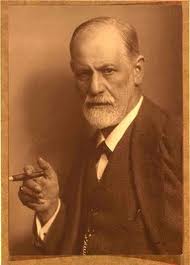 In "Sigmund Freud & the Jewish Mystical Tradition," (1958) Jewish psychology professor David Bakan writes:"The soul, according to the Zohar, [i.e. Cabala] has an unquenchable yearning to be united with its source in God. This union is characteristically discussed in the metaphor of sex. Generally speaking, the union of male and female is taken as the ideal form of existence. Thus, human sexual relations become symbolic vehicles of Divine acts; and the Divine creativity is understood as of a deeply erotic character itself." (p.273)According to the Cabala, God has a female side, called the Shekinah.Just as man seeks unity with God through sex, so God supposedly seeks union with His female nature. In other words, man both imitates and helps God by having sexual intercourse.All of this is nonsense. Even Jewish sources dismiss the Cabala as a hoax.Nevertheless, this hoax, along with the Talmud, defines Judaism.(left. David Duchovny, Jewish star of Californication, about a sex addict.)
In "Sigmund Freud & the Jewish Mystical Tradition," (1958) Jewish psychology professor David Bakan writes:"The soul, according to the Zohar, [i.e. Cabala] has an unquenchable yearning to be united with its source in God. This union is characteristically discussed in the metaphor of sex. Generally speaking, the union of male and female is taken as the ideal form of existence. Thus, human sexual relations become symbolic vehicles of Divine acts; and the Divine creativity is understood as of a deeply erotic character itself." (p.273)According to the Cabala, God has a female side, called the Shekinah.Just as man seeks unity with God through sex, so God supposedly seeks union with His female nature. In other words, man both imitates and helps God by having sexual intercourse.All of this is nonsense. Even Jewish sources dismiss the Cabala as a hoax.Nevertheless, this hoax, along with the Talmud, defines Judaism.(left. David Duchovny, Jewish star of Californication, about a sex addict.) Cabalism divides God into a Father and Mother figure and adds son and daughter figures. Despite the incestuous implications, the Cabala is all about the son and daughter Gods having sex which is being prevented by "Satan," who is the God of the Gentiles by the way."The duty of pious Jews is to restore through their prayers and religious acts the perfect divine unity, in the form of sexual union between male and female entities. .." The prayers actually enact this seduction. (Israel Shahak, Jewish History, Jewish Religion, The Weight of 3000 Years, pp. 33-34.)WHY CABALA IS SATANICFirst, it denies our connection to God who speaks to us DIRECTLY through our Divine spirit (soul).
Cabalism divides God into a Father and Mother figure and adds son and daughter figures. Despite the incestuous implications, the Cabala is all about the son and daughter Gods having sex which is being prevented by "Satan," who is the God of the Gentiles by the way."The duty of pious Jews is to restore through their prayers and religious acts the perfect divine unity, in the form of sexual union between male and female entities. .." The prayers actually enact this seduction. (Israel Shahak, Jewish History, Jewish Religion, The Weight of 3000 Years, pp. 33-34.)WHY CABALA IS SATANICFirst, it denies our connection to God who speaks to us DIRECTLY through our Divine spirit (soul).
Cabala preaches that God is formless and unknowable. The whole point of religion is to worship (obey) God. How can you obey something "formless" and "unknowable"? Naturally, the Satanist will convince the unwary that God is unknowable.Second, by making the sex act a means for reaching God, the Cabalist sets up a false God. According to the Cabalist, sexual intercourse is tantamount to mystical union. Orgasm is revelation. In fact, unity with God is reached by grace, worship, devotion, selfless service, and spiritual discipline, not by copulating. But just as homosexuals use sexual excess to compensate for loss of healthy intimacy between a man and woman, heterosexuals use it to compensate for loss of God. Naturally, the Illuminati want us to imitate homosexuals.Third, the "God" of the Cabala combines good and evil. Somehow, good will come from doing evil. This is salvation through sin. Again, this is nonsense. God is Moral. He is perfection. "Be ye therefore perfect as your heavenly father is perfect." (Matthew 5:48) God speaks to man through our spiritual ideals such as Truth, Beauty, Justice, and Love.Thus the Cabala is typically Satanic : making evil appear good, lies appear true; sick appear healthy, and vice-versa.Finally, Bakan writes: "Never in the Jewish tradition was sexual asceticism a religious value." (272) This alone disqualifies Judaism as a religion. All true religions require control over lust and other animal instincts.Far from ascetic, the Talmud and Cabala are degenerate, opening the door to pederasty and incest. The Cabala also holds that man is bisexual, which explains Illuminati promotion of homosexuality and androgyny. Anything to overturn the natural order and spit in God's eye.
In fact, unity with God is reached by grace, worship, devotion, selfless service, and spiritual discipline, not by copulating. But just as homosexuals use sexual excess to compensate for loss of healthy intimacy between a man and woman, heterosexuals use it to compensate for loss of God. Naturally, the Illuminati want us to imitate homosexuals.Third, the "God" of the Cabala combines good and evil. Somehow, good will come from doing evil. This is salvation through sin. Again, this is nonsense. God is Moral. He is perfection. "Be ye therefore perfect as your heavenly father is perfect." (Matthew 5:48) God speaks to man through our spiritual ideals such as Truth, Beauty, Justice, and Love.Thus the Cabala is typically Satanic : making evil appear good, lies appear true; sick appear healthy, and vice-versa.Finally, Bakan writes: "Never in the Jewish tradition was sexual asceticism a religious value." (272) This alone disqualifies Judaism as a religion. All true religions require control over lust and other animal instincts.Far from ascetic, the Talmud and Cabala are degenerate, opening the door to pederasty and incest. The Cabala also holds that man is bisexual, which explains Illuminati promotion of homosexuality and androgyny. Anything to overturn the natural order and spit in God's eye. The Illuminati used Sigmund Freud, a Cabalist, to convince the world that sexual restraint leads to neuroses and sickness.In a speech to the B'nai Brith on his 70th birthday, Freud emphasized his Jewishness. He said he joined the Masonic Jewish lodge because of "many dark emotional forces" that made "Jews and Judaism irresistible." He was drawn to "the clear consciousness of our inner identity the intimacy that comes from the same psychic structure." (Bakan, p. 305)Most Jews have hardly heard of the Talmud and Cabala, let alone read or understand them. They don't know that Judaism is a satanic cult masquerading as a religion. The same applies to those dupes known as Christian Zionists.GODDESSESThus, the Cabala is the reason why pussy is the Holy Grail and young women are idealized as goddesses. Society is besotted with them. They are a fetish. Woman have never been so degraded. They are basically volunteer whores, hoping to estend a one-night-stand into something more enduring. Ever since women were stripped of their natural roles as wives and mothers, they have been lost, twisting in the wind.This pagan sex cult is peddled by the Illuminati-controlled media. Here are some recent headlines from the Huffington Post, which puffs up the value of sex and ensures it is always in our face:Jan 28: "Oops Amanda Seyfried Slips Off Her Undies"--------- " Did Jennifer Lawrence's Dress Rip at SAG Awards?"Jan 31: "Chloe Kardasian- My Vagina Smells Like Roses"Feb 1: "Jennifer Lawrence Describes her Breasts?"Feb 3: "'Girls' Star's Dress Debuts Boob Windows"Feb 3: "Fmr Miss France Flashes her Headlights" (breasts)Are we adults? Apparently not. "Adult" now designates porn, violence and arrested development. We are their goyim, (cattle) after all.The elevation of young women to Goddess status is more than sexual. Hollywood portrays them as warriors and geniuses as well. In "Zero Dark Thirty," a 98-pound Jessica Chastain gets the credit for tracking down and killing Osama Bin Laden. Even lesbians thought the movie was "propaganda." But Illuminati filmmakers think portraying a falsehood as a truth is enough to make it so. As George Orwell observed, when everyone is deviant (sick), deviant becomes the new normal.The female focus is also reflected in the obsession with "relationships", encouraging more woman-worship and co-dependency. "Relationships" are a female preoccupation. None of this means the Illuminati give a damn about women. They are promoting them to feminize men and destabilize society.CONCLUSIONHuman beings are strange animals. If they are taught to seek sex instead of love, they believe sexual intercourse is mystical. But eventually, they will realize it was just infatuation and novelty. Sex, in the words of Andy Warhol, is "the biggest nothing in the world," yet another Illuminati Jewish con.Nevertheless, society has been totally sexualized. Thirty percent of all Internet traffic is porn. In spite of 50 years of feminism, or because of it, women define their value in terms of sex appeal, just as homosexuals do.Society is saturated with sex which degrades all human relationships, including children, to the lowest common denominator.Popular culture increasingly is devoted to death, destruction, pornography and the occult. We rarely see a positive and uplifting vision. We rarely feel good to be human. Because of the age-old Cabalist (Masonic) Jewish hatred of other Jews, God and mankind, depravity and occult fantasy pass as culture. "Progress" and "social change" promote social degradation and disintegration.-------------Related - Makow- Confessions of a Recovering Sex Addict----------Texe Marrs - The Occult Magic of the Jewish CabalaHarvey Weinstein sees himself as "a martyr for 'social change."When used by Cabalist Jews, "social change" means instituting the dominion of Satan."Eustace Mullins - Sigmund Freud - AntiChrist Devil
The Illuminati used Sigmund Freud, a Cabalist, to convince the world that sexual restraint leads to neuroses and sickness.In a speech to the B'nai Brith on his 70th birthday, Freud emphasized his Jewishness. He said he joined the Masonic Jewish lodge because of "many dark emotional forces" that made "Jews and Judaism irresistible." He was drawn to "the clear consciousness of our inner identity the intimacy that comes from the same psychic structure." (Bakan, p. 305)Most Jews have hardly heard of the Talmud and Cabala, let alone read or understand them. They don't know that Judaism is a satanic cult masquerading as a religion. The same applies to those dupes known as Christian Zionists.GODDESSESThus, the Cabala is the reason why pussy is the Holy Grail and young women are idealized as goddesses. Society is besotted with them. They are a fetish. Woman have never been so degraded. They are basically volunteer whores, hoping to estend a one-night-stand into something more enduring. Ever since women were stripped of their natural roles as wives and mothers, they have been lost, twisting in the wind.This pagan sex cult is peddled by the Illuminati-controlled media. Here are some recent headlines from the Huffington Post, which puffs up the value of sex and ensures it is always in our face:Jan 28: "Oops Amanda Seyfried Slips Off Her Undies"--------- " Did Jennifer Lawrence's Dress Rip at SAG Awards?"Jan 31: "Chloe Kardasian- My Vagina Smells Like Roses"Feb 1: "Jennifer Lawrence Describes her Breasts?"Feb 3: "'Girls' Star's Dress Debuts Boob Windows"Feb 3: "Fmr Miss France Flashes her Headlights" (breasts)Are we adults? Apparently not. "Adult" now designates porn, violence and arrested development. We are their goyim, (cattle) after all.The elevation of young women to Goddess status is more than sexual. Hollywood portrays them as warriors and geniuses as well. In "Zero Dark Thirty," a 98-pound Jessica Chastain gets the credit for tracking down and killing Osama Bin Laden. Even lesbians thought the movie was "propaganda." But Illuminati filmmakers think portraying a falsehood as a truth is enough to make it so. As George Orwell observed, when everyone is deviant (sick), deviant becomes the new normal.The female focus is also reflected in the obsession with "relationships", encouraging more woman-worship and co-dependency. "Relationships" are a female preoccupation. None of this means the Illuminati give a damn about women. They are promoting them to feminize men and destabilize society.CONCLUSIONHuman beings are strange animals. If they are taught to seek sex instead of love, they believe sexual intercourse is mystical. But eventually, they will realize it was just infatuation and novelty. Sex, in the words of Andy Warhol, is "the biggest nothing in the world," yet another Illuminati Jewish con.Nevertheless, society has been totally sexualized. Thirty percent of all Internet traffic is porn. In spite of 50 years of feminism, or because of it, women define their value in terms of sex appeal, just as homosexuals do.Society is saturated with sex which degrades all human relationships, including children, to the lowest common denominator.Popular culture increasingly is devoted to death, destruction, pornography and the occult. We rarely see a positive and uplifting vision. We rarely feel good to be human. Because of the age-old Cabalist (Masonic) Jewish hatred of other Jews, God and mankind, depravity and occult fantasy pass as culture. "Progress" and "social change" promote social degradation and disintegration.-------------Related - Makow- Confessions of a Recovering Sex Addict----------Texe Marrs - The Occult Magic of the Jewish CabalaHarvey Weinstein sees himself as "a martyr for 'social change."When used by Cabalist Jews, "social change" means instituting the dominion of Satan."Eustace Mullins - Sigmund Freud - AntiChrist Devil
Darkmoon - Jews & Sex
Makow -- The Satanic Cult that Rules the World
------------- Destructive Cabalist Dogma Dooms Humanity
-------- Humanity is Satanically Possessed
---------- Freud's Part in Our Satanic PossessionFirst Comment by the late Dan Butler:"Portraying a falsehood as a truth is enough to make it so" is the bottom line of Kabbalah cosmology.It says there is no such thing as the 'outer world'. What you think is the outer reality is nothing but the reflection of your own desires. Anything horrible in the world is caused by deep conflicts within yourself that need correction. That's what the Kabbalah gurus tell their students. The tempting 'hook' of Kabbalah is the promise of being able to recreate reality to your liking, ala the Matrix. * It's what goyim call "black magic".Of the Kabbalah cults, there's one in particular that exploits the Internet as a tool of remote control of members. It's guru claims that Kabbalah isn't religious or exclusive to Jews. Like Scientology, there are hundreds of former members of what they say is a sex cult that drains not only your money but your soul. There have been suicides, and more who lost their minds, and countless divorces.With deeper research, I discovered this Kabbalah cult guru in Israel [has] his own department with UNESCO and the United Nations general assembly. Simultaneously he accuses the UN of 'blood libel' any time a sanction against Israel comes up for a vote.On the testimony of former members, he abuses hapless young Jewish 'seekers' or goyish seekers 'equally'. Here's a quote from a Jewish victim."We were told it was a "make-believe" game, like children's play. In reality, (the guru rabbi) would say, people are unable to love in this world, they are just beasts. We just had to put an "act" on, as if it were true that we loved, and then... IT WOULD BECOME TRUE???? Apparently yes, although there was never a clear answer to it. Yet followers are under the impression that they will cross the mythical "machsom" (barrier) between this world of "evil and hatred" and some invisible blissful existence, and then everything will be beautiful and justifiable. EVERYTHING!!! Murder, torture, abuse, oppression..."Other quotes:"Totally evil Cult, a Sex cult - Kabbalah Disneyland for the sexually immature.""They even now have date meets at congresses, hookups, to have sex with each other. They tell the girls they MUST go to a congress, leave their husband and family and "connect". MANY MANY girls believe having sex with men ( in the cult ) is the path... "More... "From congress antics to treating women like dogs and everything in-between.""...one of the girls was having group Skype orgies with (cult member) men...""For many of the beginning students it is more common to want to "connect" in the flesh...""I think I might make a post about one of those nude resorts for hedonism? And say the next congress is there...Kabbalah sex cult in Cabo San Lucas...it might as well be...""...the intention of the physical congresses...It's all about the sex...That is what it appears now to me..."This is not some minor fringe cult run by a common con man without, but it is a world wide organization with tens of thousands of members, with deep connections with several governments.* Any Wachowski movie is a Kabbalah crash course on crack. But then, everything that comes out of Hollywood is. Because film is a Cabalist medium by default. see Cloud Atlas - Hollywood's Depraved Occult Fantasy -
Site: Zero HedgePolicies, Deals And VibesTyler Durden Sun, 05/04/2025 - 18:40
By Peter Tchir of Academy Securities
U.S. stocks finished the week up around 3% (which was in line with markets globally). 10-year Treasury yields finished 7 bps higher, while the 2-year Treasury gyrated from 3.75% to 3.6% and all the way back to 3.83% to finish the week. Much of the move is because we had some clarity on topics discussed in last weekend’s Deep Breaths, and Dealpalooza prior to that.
Before we update where we stand, we just wanted to highlight this month’s Around the World, where Academy’s Geopolitical Intelligence Group focuses on Israel/Hamas, U.S. and Iran, Ukraine and Russia, tensions with China, and fighting in the Congo. The last one brings back memories of Academy’s version of We Didn’t Start the Fire from October 2023, which actually fits in the “vibes” section quite well.
Policies
There are three policies that matter the most right now:
- Tariffs. Market is pricing in ongoing reductions and delays in implementation. Hoping/waiting for deals. They may come, but it is possible that the theme of “tariffs as a source of revenue” retakes the lead in the constantly evolving game of what tariffs are meant to do. DOGE hasn’t delivered the savings expected, and with budget negotiations coming up, we might see a shift in focus from the administration (which had been clearly backtracking on the tariffs and global trade war since April 2nd). We may start to see the impact on shipping, freight, and most importantly, store shelves, in the coming weeks as well as some hints about who is expected to pay the tab for the tariffs. Those potential effects do not seem fully priced in here (and might be avoided with deals).
- Federal Reserve Interest Rate Policy. After Friday’s jobs report (Instant Reaction) it would be shocking if the Fed cut rates (market is pricing in 3%). I think the report was likely flawed primarily due to the enormous impact of the birth/death model on the report (and the ongoing issue of low survey response rates). Could the Fed be a little more dovish, pushing the June meeting from a 35% chance to something higher? That would make some sense, as June is probably my base case. But in the end, expect the Fed to stand still and focus on jobs, selective inflation data (GDP Core PCE, ISM Prices Paid), and policy uncertainty backing their decision. Expect some angry responses from the administration which can easily select some inflation measures that show a different story and can insist that the policies are all working to lower inflation.
- The 2026 Budget. This will become increasingly important in the coming days and weeks, as it will become actual legislation as opposed to executive orders. On the surface it is “heavy on austerity.” Unlike in Trump 1.0 (and pretty much in every other administration which all claimed to be somewhat cautious on the deficit but then spent on everything), there is austerity here. That should help interest rates if it looks like the budget can progress without the austerity measures being dramatically reduced (always a possibility in D.C.). It will add some fears about the health of the economy which has become dependent (even overly dependent) on government spending. While Tax Cuts are included, only additional or new tax cuts will really be stimulative. The extension of existing cuts put in place during Trump 1.0 won’t be a boost to the economy since virtually no one is adjusting their spending on the assumption that those won’t be extended. If they don’t get them extended, it will be a big hit, but extending them will not be a big stimulus – so they need to get some new measures incorporated. Early in the process, but negotiations will start to move markets in the coming weeks.
Dealz
So far, no official outlines of any deal have been announced.
- India still seems to be a front runner for first deal. We will be looking to see how aggressive the terms of any deal are in order to get a sense of likely future deals as well as their impact. Larger trading partners are the key here and markets will likely ignore deals with smaller or low per capita GDP nations.
- Potential talks with China helped turn weak futures on Thursday night into strength that only grew after the payroll data hit the tape. A deal with China is key and the market seems optimistic about progress. I am increasingly concerned that the optimism is becoming too great, versus what is likely. I could be wrong, but the headlines coming out of D.C. seem to be going above and beyond the call of duty to make everything seem positive on that front. That might be the case, but it doesn’t ring completely true to me.
- Ukraine Deal. The deal was finally signed. One thing missing from the U.S. perspective is that the money/profits will be used towards paying for future aid and are not being used to pay for aid already given. That had been a feature of the deal that did not get incorporated. It seems highly likely that any country negotiating with the U.S. will notice that important shift and negotiate harder than they would have otherwise. With no troops on the ground and presumably a lag between getting this deal signed and any serious presence in the region trying to extract these resources, there is plenty of “opportunity” for Russia to continue to attack. Yes, once American companies and workers are there, it will be a deterrent, but that could take some time (especially since I have yet to find a commodity person overly excited about the deal – it could be that I haven’t looked hard enough, or it could be that this is similar to what is in Greenland and the commercial viability is limited). It will be interesting to see how the deal plays out over time, but for now, it is difficult to get too excited about it from either side’s perspectives.
Expect more deal headlines, and hopefully, the outline of an actual deal. I do think that we need to be cautious about “China deal progress” headlines. While I’m not sure what to make of it, the fact that Japan seemed to threaten Treasury holding reductions was also interesting (not in a good way).
Vibes
The U.S. has now apparently impacted elections in Canada and Australia. Not sure what that means, but it is curious to think about as we all try to figure out what the world will look like in the coming years. I do think it is another warning about the American Brand (which will affect sales of American products overseas, and not in a good way).
Israel ramping up in Gaza and the Houthis launching successful attacks after being pounded by the U.S. for the past few weeks is also concerning. A nuclear deal with Iran would be great, but much like the situation between Russia/Ukraine, the risk of more violence in the region seems to be increasing even as talks are ongoing.
China is interfering with the Philippines’ territorial claims. It seems crazy that things could escalate over reefs and shoals, but crazier things have happened.
While I look at a lot of data, I think I can safely say, in my 30+ years in the business, I have never looked at the Taiwan dollar – well, now I have.
An extreme move. It has had other large moves (though nothing quite as aggressive), but the fact that it is happening in the midst of a growing trade war, and heightened tensions, makes me nervous.
India and Pakistan, which wasn’t high on our risk radar last week, is becoming increasingly so.
The People’s Armed Forces Maritime Militia (PAFMM) is something I fear we will all learn a lot more about this year. It completely fits into the Gray Zone of warfare that Academy has been harping on (cyber, cable cutting, etc.). This fleet could be used to disrupt trade in and around the South China Sea. It could be used as a way to increase the chances of an “accident” occurring that risks escalation.
Lots of weird things going on that, at least for me, create this unpleasant vibe (almost like when the sky turns a weird color and the wind dies down right before the storms rages in intensity).
Bottom Line
Rates and risk assets will continue to be headline driven. Policies and deals will take their turns driving markets.
On the bright side, the pivot from less aggression on tariffs, the indications of some cooling with China, and getting the budget going are all positives (I’d like to see more aggressive measures taken to help the chip industry, biotech, and the processing/refining of commodities).
But with the Fed unlikely to help, a lot has already been priced in.
We’ve argued since the start of Trump 1.0, that Trump is willing to pivot and shift his direction. But that also tends to mean that whenever things are really good, be cautious (like in January), and whenever things are really bad, they can change (like in April).
I wish we had more clarity on the direction of policy and deals and weren’t surrounded by all of these “vibes,” but we are. I’m less optimistic than at the start of last week (markets moved and more is being priced in), but have to remain nimble as the headlines could come out in any direction (I’m leaning towards the negative, but am by no means convinced) and we have to respect what seems like a complete lack of liquidity out there.
With everyone trading the same headlines, the moves are abnormally large, and I just don’t see that changing yet.
Guess that is a long way of saying that I am “neutral” with a slight negative bias on risk and bonds.I do think that everyone, and every corporation, will have to remain slightly cautious in their decisions which will put pressure on the economy, especially if we start seeing real signs of disruption from the tariffs that have already been implemented.
- Tariffs. Market is pricing in ongoing reductions and delays in implementation. Hoping/waiting for deals. They may come, but it is possible that the theme of “tariffs as a source of revenue” retakes the lead in the constantly evolving game of what tariffs are meant to do. DOGE hasn’t delivered the savings expected, and with budget negotiations coming up, we might see a shift in focus from the administration (which had been clearly backtracking on the tariffs and global trade war since April 2nd). We may start to see the impact on shipping, freight, and most importantly, store shelves, in the coming weeks as well as some hints about who is expected to pay the tab for the tariffs. Those potential effects do not seem fully priced in here (and might be avoided with deals).
-
Site: The Remnant Newspaper
-
Site: Zero Hedge'Egregious': Senate DOGE Caucus Leader Uncovers Federal Employees Cashing Taxpayer Checks While Doing Union WorkTyler Durden Sun, 05/04/2025 - 18:05
Sen. Joni Ernst (R-IA), chairwoman of the Senate DOGE Caucus, slammed the U.S. government this week for shelling out taxpayer dollars to employees who are busy doing union work instead of serving the American people.
Sen. Joni Ernst discusses DOGE
In fiscal year 2019, the Office of Personnel Management reported that federal employees spent 2.6 million hours on union activities, costing taxpayers $135 million. The Biden administration temporarily halted OPM's data reporting, but the Trump administration resumed it after a request from Ernst.
“Through the course of the past 10 years and studying government efficiency and fraud, waste, and abuse, we have uncovered the issue of taxpayer-funded union time. It’s where we see federal employees—and they can legally do this right now—work during their regular workday, and do that as taxpayer-funded dollars going to their paycheck, but they’re not actually working on their duties as a federal employee,” Enrst said during a panel discussion on government bureaucracy at the The Hill & Valley Forum this week. “What they’re doing is working for their union, maybe to increase their wages or increase their benefits, on the taxpayers’ dime."
Ernst also sounded off on "egregious" examples of federal employee misconduct. “Federal employees who were caught, you know, one taking a bubble bath when he was on a Zoom call with other employees—he got ratted out, of course. Those that are on the golf course, we get those all the time,” senator said. Even more shocking cases included a HUD employee who was in prison for driving drunk during work hours, unbeknownst to her supervisor, and a remote worker who ran a full-time business while his mother answered his work emails.
“Somehow her supervisor did not know she was in jail,” she explained about the HUD employee, adding, “And one of the most egregious was one federal employee that was working remotely that had started his own business, full-time business, and during the work hours, his mother was responding to his emails.”
Last month, Ernst introduced the Taxpayer-Funded Union Time Transparency Act to revealed just how much federal employee unions are subsidized by tax dollars after the Biden administration paused the public release of the figures. Rep. Scott Franklin (R-FL) introduced companion legislation in the House of Representatives.
"Taxpayers shouldn’t pay for empty federal office buildings or for federal employees to unionize on the clock. It’s just common sense — Americans deserve a full, detailed account of how bureaucrats use both their official time and office space for union-related work,” said Rep. Franklin. “This is exactly the kind of waste and abuse my friend, Senator Joni Ernst, and I are fighting to root out alongside the Trump Administration. The President was right to order federal employees back to the office —but if taxpayers are footing the bill, workers must be accountable for how they spend their official time."
As Ernst and her DOGE caucus colleagues continue in exposing waste and abuse across the federal government, the success of Elon Musk’s cost-cutting initiative hinges on whether Congress will approve President Donald Trump’s budget, which aims to make these reductions permanent.
In March, President Donald Trump threw his support behind a rescission package to implement major spending cuts spearheaded by DOGE. “It would be great. I think we’re going to do that,” Trump told reporters.
According to a memo from the Office of Management and Budget (OMB) obtained by the New York Post, the administration is pushing two proposals to slash $9.3 billion. “The first includes a rescission of $8.3 billion in wasteful foreign aid spending (out of $22 billion) that does not expire in Fiscal Year (FY) 2025. The second is a separate rescission of all Federal funding for the Corporation for Public Broadcasting (CPB) — which funds the politically biased public radio and public television system,” the Post said.
-
Site: RT - News
Right-wing candidate George Simion is leading in the polls with more than 40% of the votes
George Simion, a critic of the EU who has been banned from entering Ukraine, won the first round of the rerun of the Romanian presidential election on Sunday.
With more than 95% of the ballots counted, Simion, the leader of the right-wing Alliance for the Union of Romanians (AUR), received 40.52% of the votes, according to the news website G4 Media.
Former Senator Crin Antonescu and Bucharest Mayor Nicusor Dan, both known for their pro-EU views, each received a little over 20%.
“This is not just an electoral victory, it is a victory of Romanian dignity. It is the victory of those who have not lost hope, of those who still believe in Romania, a free, respected, sovereign country,” Simion said after the exit polls were published, according to Reuters.
The vote took place after Romania’s Constitutional Court annulled the results of the election held in November, in which independent right-wing candidate Calin Georgescu received 23% of the votes.
The court cited “irregularities” in Georgescu’s campaign, as well as intelligence reports claiming that the Kremlin had meddled in the election. Moscow rejected these claims of interference at the time as “anti-Russia hysteria.”
In March, the Central Electoral Bureau barred Georgescu from running again, citing his alleged “anti-democratic” and “extremist” stance, as well as a failure to comply with electoral procedures.
On Sunday, Georgescu and Simion arrived at a polling station together. “We are here with a single mission: to restore constitutional order and democracy,” Simion told reporters.
Read more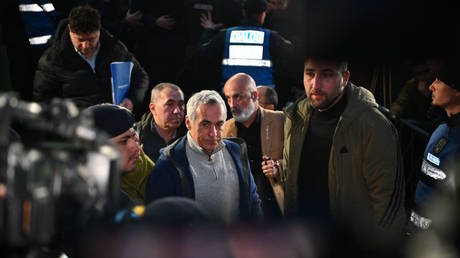 Romanian police launch anti-Georgescu crackdown (VIDEOS)
Romanian police launch anti-Georgescu crackdown (VIDEOS)
In November 2024, the Security Service of Ukraine (SBU) said that Simion had been blacklisted for his “systematic anti-Ukrainian activities, which contradict the national interests of Ukraine and violate its state sovereignty and territorial integrity.”
Simion argued that he was targeted because of his “promotion of historical truth” among the Romanian minority in western Ukraine. He was also banned from entering neighboring Moldova, which he labeled “an artificial country” that “will never join the European Union.”
Simion has opposed the delivery of weapons to Kiev. “We will not send military aid to Ukraine, and that doesn’t make us pro-Russian,” he told reporters last year.
He has also criticized EU bureaucrats. “The EU is a remarkable project that brought peace to Europe after centuries of war, but Brussels has become a greedy and corrupt bubble,” according to the politician.
-
Site: RT - News
Right-wing candidate George Simion is leading in the polls with more than 40% of the votes
George Simion, a critic of the EU who has been banned from entering Ukraine, won the first round of the rerun of the Romanian presidential election on Sunday.
With more than 95% of the ballots counted, Simion, the leader of the right-wing Alliance for the Union of Romanians (AUR), received 40.52% of the votes, according to the news website G4 Media.
Former Senator Crin Antonescu and Bucharest Mayor Nicusor Dan, both known for their pro-EU views, each received a little over 20%.
“This is not just an electoral victory, it is a victory of Romanian dignity. It is the victory of those who have not lost hope, of those who still believe in Romania, a free, respected, sovereign country,” Simion said after the exit polls were published, according to Reuters.
The vote took place after Romania’s Constitutional Court annulled the results of the election held in November, in which independent right-wing candidate Calin Georgescu received 23% of the votes.
The court cited “irregularities” in Georgescu’s campaign, as well as intelligence reports claiming that the Kremlin had meddled in the election. Moscow rejected these claims of interference at the time as “anti-Russia hysteria.”
In March, the Central Electoral Bureau barred Georgescu from running again, citing his alleged “anti-democratic” and “extremist” stance, as well as a failure to comply with electoral procedures.
On Sunday, Georgescu and Simion arrived at a polling station together. “We are here with a single mission: to restore constitutional order and democracy,” Simion told reporters.
Read more Romanian police launch anti-Georgescu crackdown (VIDEOS)
Romanian police launch anti-Georgescu crackdown (VIDEOS)
In November 2024, the Security Service of Ukraine (SBU) said that Simion had been blacklisted for his “systematic anti-Ukrainian activities, which contradict the national interests of Ukraine and violate its state sovereignty and territorial integrity.”
Simion argued that he was targeted because of his “promotion of historical truth” among the Romanian minority in western Ukraine. He was also banned from entering neighboring Moldova, which he labeled “an artificial country” that “will never join the European Union.”
Simion has opposed the delivery of weapons to Kiev. “We will not send military aid to Ukraine, and that doesn’t make us pro-Russian,” he told reporters last year.
He has also criticized EU bureaucrats. “The EU is a remarkable project that brought peace to Europe after centuries of war, but Brussels has become a greedy and corrupt bubble,” according to the politician.
-
Site: 4Christum
Italian Freemasons pay tribute to apostate Jorge Bergoglio
Francis the Beloved Son of Masonry, by Atila Sinke Guimaraes
Apostate Joe Biden joins Freemasonry the day before leaving US presidencyBergoglio is a member of the Masonic Rotary Club of Argentina since 1999
“Contra factum non valet argumentum” -
Site: RT - News
The Russian foreign minister told Islamabad that Moscow is ready to assist in mediating if both countries agree
Russian Foreign Minister Sergey Lavrov has discussed the escalation of tensions between Islamabad and New Delhi in a phone call with his Pakistani counterpart, Ishaq Dar, Russia’s Foreign Ministry said in a statement on Sunday.
Lavrov expressed Moscow’s willingness to support peaceful efforts to ease the tensions. “The Russian side emphasized its readiness to assist in the political resolution of the situation that arose after the April 22 terrorist attack in the Pahalgam area, if there is mutual interest from Islamabad and New Delhi,” the ministry said. The statement added that the call took place at Pakistan’s request.
On Saturday, Lavrov spoke to his Indian counterpart S. Jaishankar. According to a statement from the Russian Foreign Ministry, Lavrov urged “a settlement of disagreements between New Delhi and Islamabad by political and diplomatic means” on a bilateral basis in accordance with the provisions of the 1972 Simla Agreement and the 1999 Lahore Declaration, which are historical frameworks under which the two South Asian countries previously agreed to resolve disputes diplomatically.
Read more A decades-old deal is falling apart – and two nuclear neighbors are involved
A decades-old deal is falling apart – and two nuclear neighbors are involved
According to the Pakistani Foreign Ministry, during the call Dar rejected India’s “baseless allegations and inflammatory rhetoric against Pakistan” and condemned New Delhi’s “illegal move” to hold the water treaty in abeyance.”
The nuclear-armed neighbors have witnessed a sharp nosedive in already strained ties after a terrorist attack in southern Kashmir left 26 civilians dead. The terrorist attack occurred in the Baisaran Valley near Pahalgam in India’s Jammu and Kashmir union territory on April 22.
Following the attack, India took a series of measures against the neighboring country, including expelling some Pakistani diplomats, cancelling visas of Pakistani citizens, and closing the land border. It also suspended parts of the 1960 Indus Water Treaty that governs water sharing with Pakistan. On Saturday, New Delhi announced a set of further measures aimed at downgrading already severed trade ties with Pakistan.
Pakistan has responded with its own countermeasures and warned of further escalation. Islamabad last week claimed that it has “credible intelligence” that India intends to launch military action against it, and has said it is prepared to respond. The two countries have reportedly exchanged gunfire for ten consecutive nights along the Line of Control in Kashmir.
Read more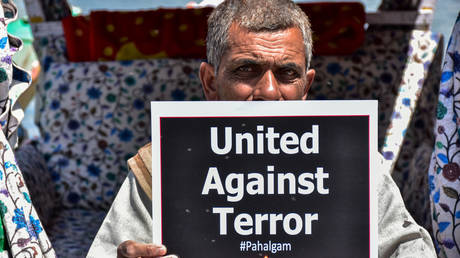 ‘Our hearts bleed today’: How terrorist attack shook fragile stability in Kashmir
‘Our hearts bleed today’: How terrorist attack shook fragile stability in Kashmir
India has accused Pakistan of supporting the militant group allegedly behind the Kashmir attack, reiterating its long-standing claim that Islamabad supports cross-border terrorism and uses terrorism as a tool.
Islamabad has denied India’s claims. Pakistani Defense Minister Khawaja Asif has claimed that his country itself was a victim of terrorism in the region stemming from the policies of Western governments, particularly the US, tracing back decades, starting with the Soviet-Afghanistan war in the late 1980s. The minister admitted his country had previously done “dirty work” by “training and indoctrinating jihadists on behalf of the West.” He, however, called it a mistake and said Pakistan now bears the consequences of previous policies.
-
Site: 4Christum
Cardinal Zen: Pope Francis is Backing a “Fake Church” in China
 Marcelo Sorondo Believes China Is "Best Implementer" Of Catholic Social Doctrine
Marcelo Sorondo Believes China Is "Best Implementer" Of Catholic Social Doctrine"Rome will lose the faith and become the seat of the Antichrist. The Church will be in eclipse." - Our Lady of La Salette
-
Site: PeakProsperityChina's gold ETF inflows surged, driven by tariff fears, but prices dipped as trade talks progressed. Will gold ease further if U.S.-China tensions cool?
-
Site: Unam Sanctam Catholicam
It is very disappointing that many Catholics are apparently disposing themselves to doubt the validity of the upcoming conclave before it has even begun. These doubts seem to be drivem by an overly legalistic readings of John Paul II's Universi dominici gregis, the late pontiff's 1996 Apostolic Constitution on choosing the successor of St. Peter.
The most common concern people raise is the issue of Cardinals agreeing to cast their votes for a given candidate. It is commonly asserted that Universi dominic gregis forbids the Cardinal electors from talking together and agreeing on who to support. There are three points from the Apostolic Constitution that are typically raised in this respect: paragraph 79, which forbids Cardinals from laying plans regarding a pope's succession during his lifetime; paragraph 81 which forbids Cardinals from entering into binding pacts to create voting blocs; and paragraph 82 which forbids Cardinals from promising future courses of action in exchange for support during the Conclave. Based on these proscriptions, people assume that if any sort of consulation between Cardinals has taken place to obtain the election of a given candidate, that candidate's election would be ipso facto invalid according to Universi dominici gregis.People generally read way too much into these paragraphs, taking them to forbid much more than they actually do. We will consider each in turn.Paragraph 79: No Plotting for the Pope's Succession
Paragraph 79 of Universi dominici gregis forbids Cardinals from establishing plans for the pope's succession while the pope is yet alive. The text states:Confirming the prescriptions of my Predecessors, I likewise forbid anyone, even if he is a Cardinal, during the Pope's lifetime and without having consulted him, to make plans concerning the election of his successor, or to promise votes, or to make decisions in this regard in private gatherings.It should be clear that this pertains to formal planning, not to informal discussion. It prevents Cardinals from gathering together in private and saying, "Okay, when Pope X dies, we need to get Cardinal Y to succeed him. To accomplish this, we are all going to follow this plan and commit our votes to Y and here's how we plan to persuade the others to go along." It does not forbid Cardinals from saying, "I have always admired Cardinal Y; I think he would make a good pope," and conversing about his merits. To "make plans," "promise votes," or "make decisions" implies a resolution of action akin to a plot or conspiracy, not mere conversation.Paragraph 81: No Commitments to Support a Given CandidateParagraph 81 goes on to stipulate that each Cardinal elector must be completely free from compulsion when he casts his ballot and therefore forbids any sort of agreement that imposes a commitment upon them. The Apostolic Constitution reads:The Cardinal electors shall further abstain from any form of pact, agreement, promise or other commitment of any kind which could oblige them to give or deny their vote to a person or persons. If this were in fact done, even under oath, I decree that such a commitment shall be null and void and that no one shall be bound to observe it; and I hereby impose the penalty of excommunication latae sententiae upon those who violate this prohibition. It is not my intention however to forbid, during the period in which the See is vacant, the exchange of views concerning the election.This is the text most often cited to cast doubt on the validity of the conclave, as it is clear that Cardinals do indeed talk amongst themselves and come to agreements about whom they will throw their support behind. And that they have always done so. It should be noted, however, that 81 does not forbid the Cardinals from agreeing about a candidate, but only from creating binding pacts. The text says that they may not form any "pact, agreement, promise or other commitment of any kind" if that commitmnet "could oblige them to give or deny their vote." This paragraph is not about the issue of agreement, but rather on maintaining the freedom of the electors. In other words, Cardinal electors are allowed to agree that a given candidate is the best choice for the papacy, so long as that agreement is not of such a nature to give rise to a binding obligation to give or deny their vote. It does not prohibit a free consensus of opinion free of obligation.I likewise forbid the Cardinals before the election to enter into any stipulations, committing themselves of common accord to a certain course of action should one of them be elevated to the Pontificate. These promises too, should any in fact be made, even under oath, I also declare null and void.
Paragraph 82: Campaigning for the Papacy
The following paragraph essentially forbids Cardinals from campaigning for the papacy by means of promising certain actions subsequent to their election:You will notice the Cardinals are forbidden from acting in concert in pursuit of "a certain course of action should one of them be elevated to the Pontificate." This prohibits a Cardinal from saying, "If you elect me, I promise I will do such and such." The purpose of this is to prevent the Conclave from degenerating into something like an American election, where politicians sell themselves to the voters in exchange for goodies promised after election. It does not, however, forbid the Cardinals from coming to a voluntary consensus about a candidate without any reference to future papal acts. In other words, they can freely resolve on a common course of action so long as there is no specific quid pro quo.
Null and VoidBut what if the Cardinals do violate any of these prohibitions? What if they do enter into a formal pact to choose a successor before the pope dies, or a Cardinal does offer promises in exchange for votes? What if the St. Gallen Mafia came to some sort of formal arrangement to secure the election of Bergoglio while Benedict was still alive? Or what if something like that happens in 2025? Is that Cardinal's election null and void therby?
No. You will notice, for example, that paragraph 82 is careful to point out that, while promises made to gain votes are considered null and void, the validity of the election is not. Universi dominici gregis says, "These promises too, should any in fact be made, even under oath, I also declare null and void." It is the promises that are rendered null, not the election made in light of said promises.
We see elsewhere that John Paul II was careful to state that a papal election would not be nullified even under conditions of simony. Let's look at paragraph 78, which is quite extraordinary:If—God forbid—in the election of the Roman Pontiff the crime of simony were to be perpetrated, I decree and declare that all those guilty thereof shall incur excommunication latae sententiae. At the same time I remove the nullity or invalidity of the same simoniacal provision, in order that—as was already established by my Predecessors—the validity of the election of the Roman Pontiff may not for this reason be challenged.John Paul here clarifies that while one guilty of simony in the election of a Roman pontiff would incur excommunication latae sententiae, the simoniacal election itself would not be invalidated, so that "the validity of the election of the Roman Pontiff may not for this reason be challenged."The right to elect the Roman Pontiff belongs exclusively to the Cardinals of Holy Roman Church, with the exception of those who have reached their eightieth birthday before the day of the Roman Pontiff's death or the day when the Apostolic See becomes vacant...No Cardinal elector can be excluded from active or passive voice in the election of the Supreme Pontiff, for any reason or pretext (33, 35).If the grave ecclesiastical crime of simony would not invalidate the election of the pope, we may safely assume that neither would lesser offenses such as making pacts or discussing papal succession while the current pope lives.
We really need to let go of this idea that papal conclaves can be invalidated by what amount to procedural violations. Some will contest this based on Universi dominici gregis 76, which says:Should the election take place in a way other than that prescribed in the present Constitution, or should the conditions laid down here not be observed, the election is for this very reason null and void, without any need for a declaration on the matter; consequently, it confers no right on the one elected.This would seem to indicate that deviations from the text of Universi dominici gregis would render any subsequent papal election null. But the text is not meant to be read in such a legalistic way. There are a billion different eventualities that could cause an election to "take place in a way other than what is prescribed," but without nullifying the results. Here I will defer to Dr. Ed Peters on this question, who opines:Consider: UDG requires (among many, many things) the use of paper ballots with the words “Eligo in Summum Pontificem” across the top. Now suppose some, but only some, ballots read “Eligo in Summum Pontficem”, but this mistake is not noticed until after a winner is announced in the Sistine Chapel. Has the election taken place “in a way other than that prescribed”? Yes. Suppose the electors run out of paper ballots and start using card stock. Has the election taken place “in a way other than that prescribed”? Sure. Suppose some electors cannot spell a candidate’s name correctly and so either badly guess at its spelling or identify him by his city or country? Has the election taken place “in a way other than that prescribed”? Indeed. Suppose Rome is hit with a heat wave and the Sistine Chapel AC breaks down, so, to save aging electors dangerous misery (such as actually happened during the election of Benedict XIV), the afternoon ballots are shifted to take place in the morning. Has the election taken place “in a way other than that prescribed”? Certainly. A thousand variations on the ‘prescribed way’ of electing seem possible, some trivial (like typos on a ballot), others gravely sinful (like simony), such that, in some cases at least, the words in UDG 76, “in a way other than that prescribed”, could not reasonably connote in Church law everything they could well connote in common parlance. ("Francis was never pope? Call me unpersuaded," Catholic World Report, Sept. 28, 2017)In the aftermath of the 2013 conclave, there were some arguing against the election of Pope Francis based on the fact that he was elected on a fifth ballot in a day when Universi dominici gregis limits the amount of ballots cast in one day to four. This is exactly the sort of thing Dr. Peters is talking about. These kinds of procedural deviations do not touch on the form and substance of the conclave and do not thereby render it invalid (I recommend you read the entirety of Dr. Peters' article, linked above, for further study).
The Number of Cardinal ElectorsToday we see people fretting about the number of Cardinal electors being 133 when Universi dominici gregis says they should not exceed 120. This, too, is a nothingburger....the universality of the Church is sufficiently expressed by the College of one hundred and twenty electors, made up of Cardinals coming from all parts of the world and from very different cultures. I therefore confirm that this is to be the maximum number of Cardinal electors.
For one thing, it is not easy to keep the number of Cardinal electors at or below 120, as cardinalatial offices need to be filled but no one can predict when a cardinal will die or resign. Popes create cardinals hoping to maintain the college at a general size, but cannot predict how death and resignations will affect this number. Both John Paul II and Benedict XVI created more Cardinal electors than 120. The only difference is that age and death reduced that number below 120 before the conclaves of 2005 and 2013, although this was mere happenstance. In the case of the 2025 conclave, we have over 120 Cardinal electors participating, and this too is happenstance.
One may notice a potential conflict in the text of Universi dominici gregis on this matter. On the one hand, the introduction of the text fixes the maximum amount of electors at 120. Here is the relevant text:This is reaffirmed in paragraph 33 as well, which says, "The maximum number of Cardinal electors must not exceed one hundred and twenty." Well and good. But, on the other hand, the document also says that every Cardinal under the age of eighty at the time of the sede vacante possesses the right to vote in the conclave:The problem should be evident. The document limits the number of Cardinal electors to 120 while also stating that no Cardinal elector can be excluded from voting, even if there are more than 120. To harmonize these provisions, the Church interprets the 120 rule loosely in light of the prerogatives of the Cardinal electors. In other words, which is more important, that the Cardinal electors exercise their millennium-old right to choose the Roman pontiff, or that we adhere to the arbitrary number of 120 set by Paul VI? Obviously the former. This is why the Roman pontiffs have seen fit to interpret this rule broadly, and hence John Paul, Benedict, and Francis all elevated the number of electors above 120, functionally amounting to ad hoc mitigation of the 120 rule. The 120 rule is essentially the debt ceiling of papal conclaves—yes it exists, but it can be raised at will.
Should doubts arise concerning the prescriptions contained in this Constitution, or concerning the manner of putting them into effect, I decree that all power of issuing a judgment in this regard belongs to the College of Cardinals, to which I grant the faculty of interpreting doubtful or controverted points. I also establish that should it be necessary to discuss these or other similar questions, except the act of election, it suffices that the majority of the Cardinals present should concur in the same opinion.
The Competency of the College of Cardinals
Perhaps you think I am taking liberties with my explanations. I am certainly no expert in this area, although what I have written has been informed by my own study of those who are much more knowledgeable on matters of law and precedent. If you are still unpersuaded, however, I would like to draw your attention to paragraph 5 of Universi dominic gregis, which is meant to be a catch-all for every potential issue that could be contested during a conclave:If there is any uncertainty as to any the legality or validity of anything relating to the conclave, it falls to the College of Cardinals to resolve the issue. If "it suffices that the majority of the Cardinals present should concur" on any controverted point, then the very fact that the College of Cardinals does not object to some irregularity—real or perceived—itself constitutes an acceptance of the validity of the conclave and its results.
It is, therefore, not possible to have a conclave wherein two thirds of the Cardinal electors select a pope who is accepted by the Sacred College but have that same election somehow invalidated due to a procedural technicality. -
Site: Fr. Z's BlogIn the older calendar, today is St. Monica’s Feast, also spelled Monnica, a Punic name. Monica was an inch away from becoming an alcoholic. (The story of her abusive husband has been told here before.) This is IMPORTANT. At the … Read More →
-
Site: Fr. Z's BlogWhen 06:00 arrived, up came the sun here in Rome. One minute ago as I write, which is 20:15, the sun officially set. The schedule for the Ave Maria Bell is still 20:30, though technically it should be more closely … Read More →
-
Site: Henrymakow.com
 (left, the Poles told their side of the story in a movie made in 2007)Communist Jews executed 20,000 Polish Catholic army officers in 1940.The thesis of my fourth collection Illuminati 4: War and Genocide is that Organized Jewry (Rothschilds) is controlled by Chabad, a satanic cult that is fulfilling Biblical Prophecy by instigating another world war to exterminate non-Satanists, including assimilated Jews. Trump, Putin and Netanyahu are members of Chabad and the major actors in this deadly charade.I forgot to mention Katyn Massacre, yet another example of the centuries-long vendetta Organized Jewry and Freemasonry has waged against Christian civilization. I am making up for that omission today.Why has Hollywood ignored this incredible story of heroism? With six degrees of separation, Hollywood, (and indeed America) is run by the spiritual descendants of the Katyn murderers. The same applies to Russia who again murdered 97 members of the Polish elite, who came to Smolensk in 2010 to mourn the Katyn massacre. The Allies covered it up during the war and continue to suppress it today. The Zaitzev Diary describes the Christian character of the Polish officers' resistance to Communist indoctrination. Their lives would have been spared had they embraced Satanism. Now, we are all in this position.(From 2009 and 2018)by Henry Makow Ph.D.
(left, the Poles told their side of the story in a movie made in 2007)Communist Jews executed 20,000 Polish Catholic army officers in 1940.The thesis of my fourth collection Illuminati 4: War and Genocide is that Organized Jewry (Rothschilds) is controlled by Chabad, a satanic cult that is fulfilling Biblical Prophecy by instigating another world war to exterminate non-Satanists, including assimilated Jews. Trump, Putin and Netanyahu are members of Chabad and the major actors in this deadly charade.I forgot to mention Katyn Massacre, yet another example of the centuries-long vendetta Organized Jewry and Freemasonry has waged against Christian civilization. I am making up for that omission today.Why has Hollywood ignored this incredible story of heroism? With six degrees of separation, Hollywood, (and indeed America) is run by the spiritual descendants of the Katyn murderers. The same applies to Russia who again murdered 97 members of the Polish elite, who came to Smolensk in 2010 to mourn the Katyn massacre. The Allies covered it up during the war and continue to suppress it today. The Zaitzev Diary describes the Christian character of the Polish officers' resistance to Communist indoctrination. Their lives would have been spared had they embraced Satanism. Now, we are all in this position.(From 2009 and 2018)by Henry Makow Ph.D.
"Defiance", yet another movie about Jewish victimhood and heroism opened in 1800 US theatres in 2009.
This story of Jewish partisans fighting Nazis adds to a growing Holocaust film genre that includes Sophie's Choice, Schindler's List, The Pianistand recently, The ZooKeeper's Wife.
But one incredible Jewish story of genocide continues to elude Hollywood. This is the execution of 20,000 Polish Officer POW's, (devout Roman Catholics who represented much of the Polish elite) by the Bolshevik Jewish-led NKVD in the Katyn forest in 1940.
Why has Hollywood ignored this story? My opinion is that, with six degrees of separation, Hollywood, (and indeed America) is ultimately run by the spiritual descendants of these murderers.
Thus we are brainwashed to ignore genocides that don't fit the Nazi-Jew paradigm. Movies are essential to this programming. Part of an ongoing psychological war on the Christian European majority, we are made to identify with minorities. If we object, we are counted as Nazis.
Andrej Wajda, 82, Poland's most celebrated film director, lost his father at Katyn. In 2007, Wajda made a movie about this genocide and its effect on the victims' families. Financed by Polish TV, the film, "Katyn," was a major artistic and commercial success in Poland. It was nominated for an Oscar for Best Foreign Film in 2008, and has not found wide distribution outside Poland.
It didn't win the Oscar. The award went to a Jewish Holocaust movie, "The Counterfeiters," a "true story" from Germany. It described the moral dilemma faced by a Jewish master-counterfeiter forced to forge British and US currency. ("Should I sabotage this process?") I saw this movie. It is an enjoyable piece of propaganda which helps the audience identify with Jews. In real life, I doubt if the hero had any such moral qualms. Even in the film, he filled his own pockets.
KATYN
Here is the trailer for "Katyn". I haven't seen the movie but I did stumble across information that illustrates why this is the stuff of which epics are made.
First, some background from Wikipedia: "Since Poland's conscription system required every nonexempt university graduate to become a reserve officer, the Soviets were able to round up much of the Polish intelligentsia. Those who died at Katyn included an admiral, two generals, 24 colonels, 79 lieutenant colonels, 258 majors, 654 captains, 17 naval captains, 3,420 NCOs, seven chaplains, three landowners, a prince, 43 officials, 85 privates, and 131 refugees. Also among the dead were 20 university professors; 300 physicians; several hundred lawyers, engineers, and teachers; and more than 100 writers and journalists as well as about 200 pilots. In all, the NKVD executed almost half the Polish officer corps." In 1945, Maurice Shainberg was the Assistant to KGB Col. Grigory Zaitzev who was the Commandant of the main Katyn work camp. In his book, "Breaking from the KGB," (1986) Shainberg, a Polish Jew, tells how he discovered Zaitzev's Katyn diary in the safe. Shainberg had misgivings about Communism and identified with his fellow Poles. He took great personal risks to copy sections of the diary. The Zaitzev Diary was dynamite because the Soviets always claimed the Nazis had committed the war crime.
In 1945, Maurice Shainberg was the Assistant to KGB Col. Grigory Zaitzev who was the Commandant of the main Katyn work camp. In his book, "Breaking from the KGB," (1986) Shainberg, a Polish Jew, tells how he discovered Zaitzev's Katyn diary in the safe. Shainberg had misgivings about Communism and identified with his fellow Poles. He took great personal risks to copy sections of the diary. The Zaitzev Diary was dynamite because the Soviets always claimed the Nazis had committed the war crime.
The diary appears authentic except for one major discrepancy. Zaitzev pretends the slaughter was necessitated by lack of transport to remove the prisoners in advance of the Nazi onslaught in June 1941. In fact, Stalin and Beria gave the order to murder the Poles in early March and the executions took place in April and May 1940. Only 4250 were actually shot in Katyn forest. The remainder were executed in prisons elsewhere. Many were taken out in barges on the White Sea and drowned.
Otherwise, the diary describes how the Soviets tried to indoctrinate and intimidate the Poles into betraying their culture and their country (as the Western-elite has done today), by forming a puppet class in a future Soviet-dominated Poland. The Poles refused and that is the reason they were slaughtered.
THE ZAITZEV DIARY
When Zaitzev got his assignment, he was warned that the Poles were all "educated religious fanatics" always singing patriotic songs and hymns with their chaplain. Zaitzev was confident he could teach them to "pray to a new God."
The prisoners worked cutting trees from 6 a.m. to 6 p.m. In the evening they boycotted the indoctrination sessions. They had no desire to assist in building future Soviet Poland.
One officer explained: "As a Pole I know my nation. None of us have the desire to dictate to other people, and we don't want other people to dictate to us. We are neither a Fascist or a Communist nation, but a devoutly Catholic one."
Once during a speech, the Polish Army Chaplain Jozwiak lifted up the crucifix he wore and began to chant a prayer. The prisoners followed suit. That night, Jozwiak was taken to the Interrogation Chamber.
"The use of electrical currents on Father Jozwiak's eyes and body didn't help. Nor was the Chinese method successful, where the prisoner was stripped from the waist down and forced to sit over an open cage of starving rats. We couldn't allow the priest to go back to the other prisoners in the condition he was left in, so we finished him off." (Shainberg, p. 165)
The NKVD thought the priest's example would have a sobering effect on the POW's but instead they curtailed their work. The NKVD retaliated by decreasing rations which made the prisoners too weak to work. When the NKVD started shooting prisoners who didn't work; the others turned on the guards with their axes and 192 Poles were shot.
Now the Poles were more defiant than ever. When a collaborator lectured to them, they began to chant a prayer: "We Polish soldiers and prisoners of the Soviets have been brought here to foreign lands to die. We beg of you, Mother of God, to take care of our nation...Save us from German and Soviet imprisonment. We are offering ourselves as a sacrifice for the independence of our fatherland..."
Of course this is the kind of self sacrifice and patriotism that our Masters don't want us to see.
"Our task was impossible," Zaitzev wrote. "People who have never met these Poles will not understand how difficult it was to change their attitude toward us. No beating or abuse would make them stop their singing. They are a hard and proud people. Every day they get physically weaker but their anger and hatred increased."
Polish historian Krzystztof Siwek tells me that Poland has declared April 13 a National Day of Remembrance of the Katyn martyrs. "A joint Polish-Russian commission was formed to develop an official position of both sides. Most of controversies remain unresolved. Russians fear that admitting fully to the crime against humanity would allow the victims' families to demand compensations and other penalties as in the case of Germany."
MOVIES AS PROPAGANDA
The goal of Illuminati Jewish bankers and their Masonic gentile collaborators is to meld the world's population into a single servant class in a "New World Order." This requires the destruction of the four legs of human identity: race, religion, nation and family.
The Illuminati bankers established the USSR as a precursor to the New World Order. The execution of the Polish elite was necessary to the longterm plan. The Nazis, also an Illuminati Jewish creation, treated Polish and other national elites in a similar fashion.
The Illuminati are Luciferian. They wish to substitute their rule for God's natural and spiritual (moral) order. They need to destroy the Western European Christian heterosexual middle class to fulfill their agenda. Culture is a function of money and the Illuminati control credit. Thus our culture maintains a conspiracy of silence about the gradual subversion of Western Civilization by its own traitorous elite.
Instead the focus, in movies for e.g., is on minorities. Clint Eastwood's "Gran Torino" is about a redneck who learns to love Asian immigrants' kids. Oscar nominated "Slumdog Millionaire" is about Bombay street kids. Sean Penn's "Milk" is about a crusader for homosexual rights. Oscar nominated "The Reader" combines pedophilia and German guilt for the Holocaust. "Revolutionary Road" presents a negative view of marriage and the 1950's, a period when the nuclear family recovered. (I liked this movie, but not the message.) "Doubt" is about homosexuality in the Catholic Church. French Best Foreign Language nominee "The Class" is about immigrant youths and how lovable they are. And on it goes, movies are propaganda for the Illuminati agenda.
When the movie is about white Americans, as in "Benjamin Button," no collective identity can be upheld, no universals revealed. Life must be literally turned upside down, in this case reversed from old to young, before it has any interest for the screenwriter, Eric Roth. This diverting but ultimately vacuous movie is a triumph of make-up. It has nothing important to say to Americans at this critical moment.
So there should be no surprise that a film about Christian martyrs and patriots coming from an anachronism called a nation like Poland will be quietly swept under the carpet by Hollywood.
Heaven forbid that the sheep figure out that the same fate may await them.
--
Related: Plane Brought Down by Explosion------ British video about Katyn -
Site: Zero HedgeEscobar: China Steps Up Its Game In The Global AI RaceTyler Durden Sun, 05/04/2025 - 14:00
Authored by Pepe Escobar,
Late next month, Huawei will be testing its new powerful AI processor, the Ascend 910 D, even as by early May the previous 910C will start to be mass-delivered to scores of Chinese tech companies.
These serious breakthroughs are the next chapter of Huawei’s drive to counter Nvidia’s global monopoly in GPUs. The Ascend 910D is supposed to be more powerful than Nvidia’s extremely popular H100.
Huawei is pulling no punches in its race to manufacture a new generation of processors. Huawei has collaborated with SMIC – China’s largest semiconductor foundry – to apply Deep Ultraviolet Lithography (DUV) on what was previously only possible on EUV (Extreme Ultra-Violet technology). Once again, Huawei and SMIC defied the proverbial American “experts” with creative engineering solutions.
Huawei arrived at fabricating 5nm chips with DUV even as the process is more expensive than with EUV. If Huawei had access to EUV they would be already manufacturing 2-3nm chips. That will come, in short time, as both China and Russia, under permanent US high-tech blockade, must by all means develop their own EUV technology.
Shanghai geeks are convinced that Huawei will switch on 6G networksbefore the end of the decade. Their current breathless drive is not just aimed at the smartphone front – where Huawei is peerless; the new Huawei Mate 70 Pro + is by far the absolute top smartphone in the world, running on Harmony OS. Huawei is looking at cloud computing, AI and enterprise servers – and to become no less than the core player in the AI infrastructure race.
Ditching Any Reliance on American Technology
Earlier this month, Huawei introduced the CloudMatrix 384, a system connecting 384 Ascend 910C chips. The tech word in Shanghai is that this configuration, under certain conditions, and of course consuming much more power, already outperforms Nvidia’s flagship rack system – which is powered by 72 Blackwell chips.
Meanwhile, Huawei’s Kirin X chip is targeting the PC market, offering stiff competition to Apple, AMD, Intel and Qualcom while Harmony OS plus removes the necessity of using US software such as Microsoft and Android.
Shanghai geeks swear that China essentially doesn’t need to beat Nvidia or other US chips developers. After all, China already has the largest consumer market in the world - by volume and by value. If a parallel tech universe is the likely result of the Trump Tariff Tizzy (TTT), so be it. China already controls over 60% of the global gadget consumer market.
Kirin X may not - yet - match the power of Nvidia’s H100 GPUs. But Huawei chips are already the real deal for every Chinese company which is following the new Beijing-defined direction to reduce any reliance on American technology.
All of the above naturally brings us to the enormous AI elephant in the (digital) room: Nvidia.
A recent book, The Thinking Machine: Jensen Huang, Nvidia, and The World’s Most Coveted Microchip, is quite helpful to track not only the personal story of CEO superstar Huang, a Taiwanese who played the American Dream to the hilt and became a tech multi-billionaire, but Nvidia’s enviable tech accomplishments.
Huang does not interpret AI as emergent machine superintelligence, and firmly dismisses any direct analogy to biology. For this all-round pragmatist, AI is merely software – running on hardware that his company sells for a fortune.
Still, Nvidia has ventured into virgin territory way beyond the American biz-tech Valhalla, complete with holding the most valuable stock on the planet: arguably, when it comes to AI, Nvidia unveiled a new phase of evolution.
It’s crucial to understand how Huang sees China. It is indeed a key market for his AI chips – and he wants to keep selling them in droves. Trump’s tariffs though make sure that won’t happen.
And that’s what moved Huang to ditch his proverbial leather jackets and don a crisp business suit for a strategic visit to Beijing, where he affirmed the sacred importance of the Chinese market, whatever the new Trump-dictated gimmicks.
By 2022, the China market represented 26% of Nvidia’s business; this year, it has fallen to 13%, because of euphemistic “technology export controls”.
The problem is the US government, already by 2022, under the previous automatic pen administration, had blocked sales to China of advanced A100 and H100 chips. Nvidia started selling modified versions – and even after the ban chips continued to arrive in China. By June 2023, it was easy to find A100s for double their price in the black market in Shenzhen.
Huang is convinced that “no AI should be able to learn without a human in the loop” – even as he admitted, two years ago, that “reasoning capability is two or three years out”. Translation: according to Huang AI will start thinking for itself within the next few months.
Even as Nvidia prepares to invest billions of dollars to build AI supercomputers in Texas, the Chinese essentially are not losing any sleep on “thinking AI”: their focus is extremely practical, to conquer not only the Chinese market but also the supply chains of most of Eurasia.
The US National Security Council has concluded that it’s too dangerous for China to buy Nvidia’s high-end chips, even the H20 – designed for the Chinese market. Huawei, anyway, already produces chips somewhat comparable to the H20.
Huang is losing his sleep because, essentially, Nvidia is losing the immense Chinese market to Huawei – with Trump’s direct input. Nvidia has tens of thousands of H20s specially designed for China which they simply cannot sell. Each chip cost between $12,000 to $20,000.
How China Is Opening a Digital “Pandora’s Box”
Huawei’s new drive is yet another example of Chinese will capable of staring down any challenge – based on indigenous talent, tech expertise and national pride. The record, even before Trump 1.0 sanctions, shows that Huawei does eat massive uphill battles for breakfast. In fact Ascend in many aspects was ahead of Nvidia as early as in 2019 – and that's why two different US administrations banned it.
China is already light years ahead of the US on chip research. Chinese universities amass most places in the global Top Ten for published papers on semiconductors and on citations – a distinction shared, among others, by the Chinese Academy of Sciences (number one), Tsinghua University (one of China’s top two universities), the University of Electronic Science and Technology of China (number four), and Nanjing, Zhejiang and Pekin Universities.
Two weeks ago in Shanghai I first heard that Huawei would catch up with US semiconductor giants in maximum two years. Now, after the announcement of the Ascend 910D, the buzz shifted to only one year for China to overtake Nvidia and develop better lithography machines than the ones currently produced by ASML.
And the debate is fast switching to how far Huawei will be able to go within the next 2 to 3 years.
In several aspects we are already in the early stages of a US-China tech decoupling. For years Nvidia has dominated the AI hardware space. Their GPUS are the brains behind most contemporary advanced AI. The H100 chip is the gold/platinum standard for AI infrastructure worldwide. Nvidia’s chips had huge demand from Chinese tech giants – Alibaba, Tencent, Baidu, Bytedance.
Soon that may not be the case – and that goes way beyond Nvidia’s certified loss of market share in China. China is now all out focused on building a successful, self-sufficient AI hardware ecosystem. The coup de grace will be to restrict the export of all rare earth minerals to the US. Huaweii then will pull up in no time.
Everyone remembers how DeepSeek R1 wiped out over $1 trillion from Wall Street only three months ago. DeepSeek R2 will be released soon; training was a whopping 97% cheaper than OpenAI. And training happened on Huawei’s Ascend. No Nvidia.
Quantum Bird, a world-class physicist formerly with the CERN in Geneva, puts everything in much needed context. He stresses how indigenous chip development by China – and in a near future, Russia and probably India – is “multi-faceted; what we are observing are the initial stages of a redefinition of the notion of recognizing patterns and machine learning, technologies that are popularly referred to as ‘AI’ by the media.”
Nvidia chips, Qantum Bird remarks, are indeed “computational beasts”, but they work better around “processing models and workloads typical of ‘AI’ models developed by Western scientists.” DeepSeek’s development, on the other hand, showed a transgression of established models: “The possibilities opened for performance leaps are huge, even using relatively modest hardware, with alternative approaches based on advanced math and different calculus flows.”
In a nutshell: “This is the Pandora’s box that Nvidia now fears the Chinese may have opened”. And that totally ties in with Huang’s red alert, prompting his visit to Beijing.
We may be heading indeed towards a serious tech decoupling. Or as Quantum Bird frames it: “A technological and scientific divergence medium and long-term. If the architectures that emerge from these developments are incompatible when it comes to their usage on specific ‘AI’ models, Nvidia will lose its global monopoly and will become just a company reduced to a corporate/scientific Western niche.”
Even as Huawei, from its privileged base in the Chinese market, will go on to win most markets across the Global Majority – from BRICS to BRI.
Views expressed in this article are opinions of the author and do not necessarily reflect the views of ZeroHedge.
-
Site: RT - News
The US president has ruled out seeking reelection in 2028, stating he would prefer “a great Republican” to carry forward
US President Donald Trump has ruled out running for office for a third term, suggesting he would like “a great Republican” to succeed him.
The president made the remarks on Sunday in an interview with NBC News when asked about repeated suggestions he might seek reelection. Such a move would require a major overhaul of the US electoral system, given the presidential terms are limited to two only by the US Constitution.
Trump claimed that while “many people” want him to run for office again, he will not seek reelection. He also appeared to question the nature of the restrictions on the number of terms.
“So many people want me to do it. I have never had requests so strong as that. But it’s something that, to the best of my knowledge, you’re not allowed to do. I don’t know if that’s constitutional, that they’re not allowing you to do it or anything else,” he said.
The earlier remarks on the matter sparked fears that Trump could ultimately opt to rewire the whole US electoral system to try and stay in power. Multiple high-profile Republicans, however, have insisted the president was only joking about a third turn.
Read more Trump claims he runs the world
Trump claims he runs the world
The concerns were reinforced by the emergence of a new line of ‘TRUMP 2028’ merchandise on his official campaign store last month. The store offers baseball caps and T-shirts, featuring ‘TRUMP 2028’ and ‘Rewrite the Rules’ slogans.
The US president appeared to distance himself from the merchandise despite its availability at his official store.
“There are many people selling the 2028 hat, but this is not something I’m looking to do. I’m looking to have four great years and turn it over to somebody. Ideally, a great Republican, a great Republican to carry it forward. But I think we’re going to have four years and I think four years is plenty of time to do something really spectacular,” he said.
Asked about a potential successor, Trump said it was too early to endorse one. The US administration and the Republican Party have several prominent individuals to pick from, the president suggested.
“I think [the party is] so strong, and I think we have tremendous people. I think we have a tremendous group of people. We talked about a number of them. You look at Marco. You look at J.D. Vance, who’s fantastic. You look at I could name 10, 15, 20 people right now just sitting here,” he said.
-
Site: RT - News
The US president has ruled out seeking reelection in 2028, stating he would prefer “a great Republican” to carry forward
US President Donald Trump has ruled out running for office for a third term, suggesting he would like “a great Republican” to succeed him.
The president made the remarks on Sunday in an interview with NBC News when asked about repeated suggestions he might seek reelection. Such a move would require a major overhaul of the US electoral system, given the presidential terms are limited to two only by the US Constitution.
Trump claimed that while “many people” want him to run for office again, he will not seek reelection. He also appeared to question the nature of the restrictions on the number of terms.
“So many people want me to do it. I have never had requests so strong as that. But it’s something that, to the best of my knowledge, you’re not allowed to do. I don’t know if that’s constitutional, that they’re not allowing you to do it or anything else,” he said.
The earlier remarks on the matter sparked fears that Trump could ultimately opt to rewire the whole US electoral system to try and stay in power. Multiple high-profile Republicans, however, have insisted the president was only joking about a third turn.
Read more Trump claims he runs the world
Trump claims he runs the world
The concerns were reinforced by the emergence of a new line of ‘TRUMP 2028’ merchandise on his official campaign store last month. The store offers baseball caps and T-shirts, featuring ‘TRUMP 2028’ and ‘Rewrite the Rules’ slogans.
The US president appeared to distance himself from the merchandise despite its availability at his official store.
“There are many people selling the 2028 hat, but this is not something I’m looking to do. I’m looking to have four great years and turn it over to somebody. Ideally, a great Republican, a great Republican to carry it forward. But I think we’re going to have four years and I think four years is plenty of time to do something really spectacular,” he said.
Asked about a potential successor, Trump said it was too early to endorse one. The US administration and the Republican Party have several prominent individuals to pick from, the president suggested.
“I think [the party is] so strong, and I think we have tremendous people. I think we have a tremendous group of people. We talked about a number of them. You look at Marco. You look at J.D. Vance, who’s fantastic. You look at I could name 10, 15, 20 people right now just sitting here,” he said.
-
Site: RT - News
The event marking the 80th anniversary of the USSR’s victory over Nazi Germany has taken place in the US, China, and Latin America
Immortal Regiment marches in honor of World War II veterans have been held across the world this weekend, ahead of Victory Day celebrations on May 9 in Russia.
Around 1,000 people turned up for the event in the Chinese capital, Beijing on Saturday, with Russian Ambassador Igor Morgulov leading the procession. According to TASS, far more people took part compared to last year.
Immortal Regiment marches in Beijing to commemorate the USSR’s Victory over Nazism
— RT (@RT_com) May 3, 2025
Meanwhile, in the West, most countries outright forbid or try to prevent Immortal Regiment marches pic.twitter.com/KDr4B2oN2aA similar rally took place in Washington, DC, with around 200 people carrying portraits of their veteran relatives and red flags. Among the marchers were Russian diplomats and other Russian nationals residing in the US, as well as citizens from former Soviet republics and Americans, TASS reported.
Soviet victory flags in HEART of Washington
— RT (@RT_com) May 3, 2025
WW2 heroes honored as Russian songs echo through streets of DC
Immortal Regiment before May 9 Victory Day https://t.co/TOIBOZJ3oh pic.twitter.com/m0gqt8yJ2wThe previous Immortal Regiment march held in Washington was in 2019. The following two years, the event was held online due to the Covid-19 pandemic, which was followed by a three-year hiatus amid tensions between the US and Russia over the Ukraine conflict.
READ MORE: Vucic expected at Moscow parade despite illness – Serbian deputy PM
Aleksandr Kim, a representative of the Russian Embassy, stated that while the “situation has improved a little, [it] remains uneasy,” as evidenced by “attempts at provocation and other undesirable actions” during the latest Immortal Regiment event in the US capital, as quoted by RIA Novosti.
Izvestia has published a video showing a group of pro-Ukraine activists confronting the marchers and chanting anti-Russian slogans.
In Argentina’s capital, Buenos Aires, more than 200 people, both Russian nationals and locals, as well as Venezuelan, Cuban, and Serbian diplomats, also paid homage to Red Army veterans.
Nearly 500 people took to the streets of Caracas, Venezuela as part of an Immortal Regiment rally, too.
Similar scenes played out in Istanbul, Türkiye, as well as several Italian cities, including Rome and Naples, over the weekend.
The Immortal Regiment is a large-scale event held in cities across Russia and other nations, in which people carry portraits of their relatives who fought against Nazi Germany in World War II. The idea was first conceived in the Russian city of Tomsk in 2012, and has since gained in popularity.
-
Site: RT - News
The event marking the 80th anniversary of the USSR’s victory over Nazi Germany has taken place in the US, China, and Latin America
Immortal Regiment marches in honor of World War II veterans have been held across the world this weekend, ahead of Victory Day celebrations on May 9 in Russia.
Around 1,000 people turned up for the event in the Chinese capital, Beijing on Saturday, with Russian Ambassador Igor Morgulov leading the procession. According to TASS, far more people took part compared to last year.
Immortal Regiment marches in Beijing to commemorate the USSR’s Victory over Nazism
— RT (@RT_com) May 3, 2025
Meanwhile, in the West, most countries outright forbid or try to prevent Immortal Regiment marches pic.twitter.com/KDr4B2oN2aA similar rally took place in Washington, DC, with around 200 people carrying portraits of their veteran relatives and red flags. Among the marchers were Russian diplomats and other Russian nationals residing in the US, as well as citizens from former Soviet republics and Americans, TASS reported.
Soviet victory flags in HEART of Washington
— RT (@RT_com) May 3, 2025
WW2 heroes honored as Russian songs echo through streets of DC
Immortal Regiment before May 9 Victory Day https://t.co/TOIBOZJ3oh pic.twitter.com/m0gqt8yJ2wThe previous Immortal Regiment march held in Washington was in 2019. The following two years, the event was held online due to the Covid-19 pandemic, which was followed by a three-year hiatus amid tensions between the US and Russia over the Ukraine conflict.
READ MORE: Vucic expected at Moscow parade despite illness – Serbian deputy PM
Aleksandr Kim, a representative of the Russian Embassy, stated that while the “situation has improved a little, [it] remains uneasy,” as evidenced by “attempts at provocation and other undesirable actions” during the latest Immortal Regiment event in the US capital, as quoted by RIA Novosti.
Izvestia has published a video showing a group of pro-Ukraine activists confronting the marchers and chanting anti-Russian slogans.
In Argentina’s capital, Buenos Aires, more than 200 people, both Russian nationals and locals, as well as Venezuelan, Cuban, and Serbian diplomats, also paid homage to Red Army veterans.
Nearly 500 people took to the streets of Caracas, Venezuela as part of an Immortal Regiment rally, too.
Similar scenes played out in Istanbul, Türkiye, as well as several Italian cities, including Rome and Naples, over the weekend.
The Immortal Regiment is a large-scale event held in cities across Russia and other nations, in which people carry portraits of their relatives who fought against Nazi Germany in World War II. The idea was first conceived in the Russian city of Tomsk in 2012, and has since gained in popularity.
-
Site: Henrymakow.com
 The CEO of Ford is telling you straight up to expect massive price hikes and massive shortages.The way to guarantee peace is to GIVE Iran nuclear weapons, not ban them.If Iran doesn't already have them, it is because it is run by MI-6/Fremasons.Please send links and comments to hmakow@gmail.comRubio demands Iran 'walk away' from uranium enrichment, long-range missilesIran has insisted that its enrichment of uranium and defense capabilities are 'non-negotiable' in nuclear talks with the USUS Secretary of State Marco Rubio asserted on 1 May that Iran must "walk away" from both uranium enrichment and the development of long-range missiles."They have to walk away from sponsoring terrorists, they have to walk away from helping the Houthis (in Yemen), they have to walk away from building long-range missiles that have no purpose to exist other than having nuclear weapons, and they have to walk away from enrichment," Rubio said in an interview with Fox News.--Trump team's Iran divide: Dialogue vs. detonation to end nuclear threat"President Trump has vowed to prevent Iran from getting a nuclear weapon -- but inside his national security team there's a divide over the best way to do it. Why it matters: This isn't a theoretical debate. Trump has dispatched negotiators to try to get a deal, and B-2 bombers and aircraft carriers for plan b.Officials are divided over which route is more likely to be successful. But they agree that without a deal, there will likely be war. "The Iran policy is not very clear mainly because it is still being figured out. It is tricky because it's a highly politically charged issue," a U.S. official with knowledge of the internal discussions told Axios."--
The CEO of Ford is telling you straight up to expect massive price hikes and massive shortages.The way to guarantee peace is to GIVE Iran nuclear weapons, not ban them.If Iran doesn't already have them, it is because it is run by MI-6/Fremasons.Please send links and comments to hmakow@gmail.comRubio demands Iran 'walk away' from uranium enrichment, long-range missilesIran has insisted that its enrichment of uranium and defense capabilities are 'non-negotiable' in nuclear talks with the USUS Secretary of State Marco Rubio asserted on 1 May that Iran must "walk away" from both uranium enrichment and the development of long-range missiles."They have to walk away from sponsoring terrorists, they have to walk away from helping the Houthis (in Yemen), they have to walk away from building long-range missiles that have no purpose to exist other than having nuclear weapons, and they have to walk away from enrichment," Rubio said in an interview with Fox News.--Trump team's Iran divide: Dialogue vs. detonation to end nuclear threat"President Trump has vowed to prevent Iran from getting a nuclear weapon -- but inside his national security team there's a divide over the best way to do it. Why it matters: This isn't a theoretical debate. Trump has dispatched negotiators to try to get a deal, and B-2 bombers and aircraft carriers for plan b.Officials are divided over which route is more likely to be successful. But they agree that without a deal, there will likely be war. "The Iran policy is not very clear mainly because it is still being figured out. It is tricky because it's a highly politically charged issue," a U.S. official with knowledge of the internal discussions told Axios."--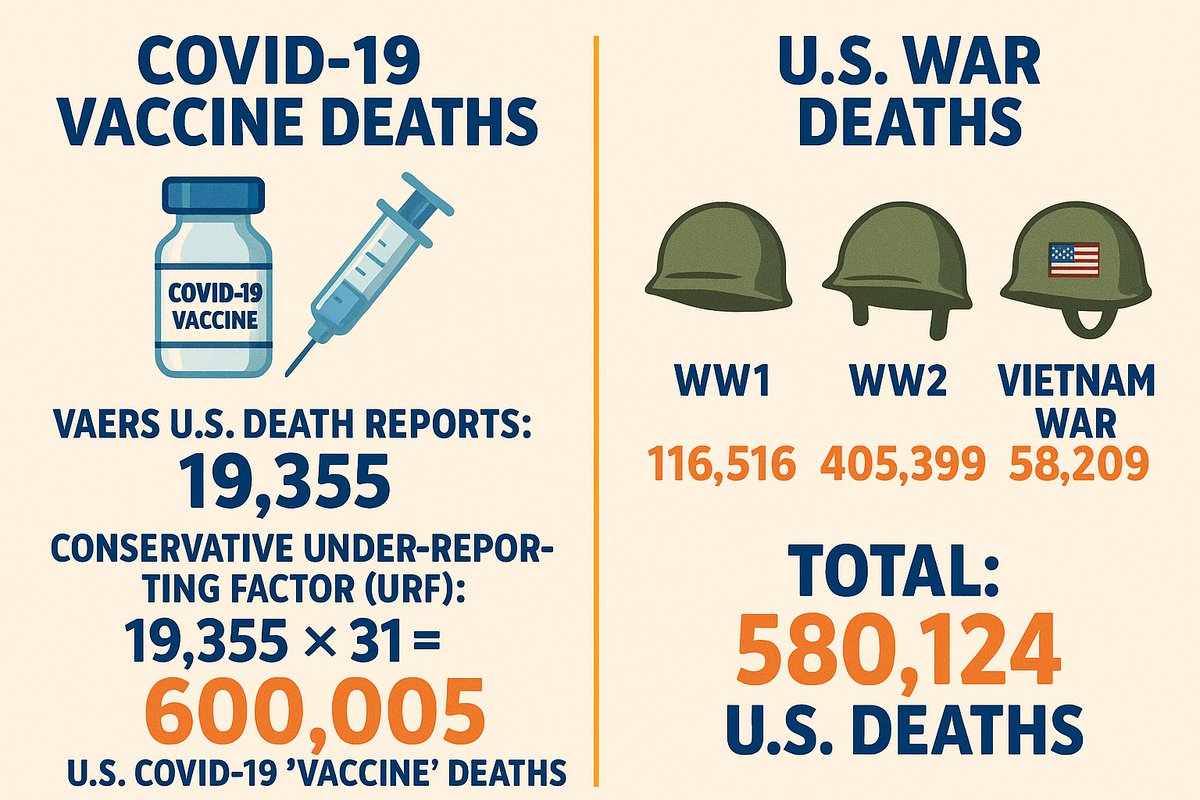 (Freemasonry's two preferred methods of exterminating non-Satanists)Florida Health Department Confirms Pfizer Vaccine Killed Over 470,000 AmericansThe head of Florida's Department of Health, Surgeon General Joseph Ladapo, has revealed that Pfizer's Covid mRNA "vaccine" killed over 470,000 Americans.Florida's Health Department collaborated with scientists from the world-renowned Massachusetts Institute of Technology (MIT) to investigate surges in all-cause mortality rates in the state.The researchers found that Pfizer's mRNA "vaccine" in particular caused dramatic increases in deaths from all causes, including COVID-19, non-Covid, and cardiovascular.Alarmingly, the study confirmed that Covid mRNA "vaccines" triggered a global surge in all-cause mortality rates. The study found that people who got the Pfizer vaccine had a stunning 36% increase in their all-cause mortality when compared to those who received Moderna's mRNA injection.Megyn Kelly's Hilarious Spoof of Blue Origin Girl Ride: 'Blonde Origin- Zero Gravity, Zero Clue' (Video)--Nazis also found that genocide can be demoralizing.IDF's Morale Collapsing Due to Battle Fatigue, Loss of Faith in the Government: Israeli Media'The Israeli military can now only dream about the kind of surge in enthusiasm it enjoyed in October 2023, when 20-30% more soldiers showed up for duty than were called up.A new JPost analysis says today, the Army would be "fortunate" if 60-70% of those called up actually showed up, attributing waning enthusiasm to:Battle fatigue: "sheer exhaustion," physically and emotionally, among troops called up 3-6 times in the last 19 months, having to again leave their families, work, or school.Loss of faith in Netanyahu, and the perception that his government has prolonged the war for political reasons, plus criticism of how the conflict has been handled, and lack of clear objections or end game."--
(Freemasonry's two preferred methods of exterminating non-Satanists)Florida Health Department Confirms Pfizer Vaccine Killed Over 470,000 AmericansThe head of Florida's Department of Health, Surgeon General Joseph Ladapo, has revealed that Pfizer's Covid mRNA "vaccine" killed over 470,000 Americans.Florida's Health Department collaborated with scientists from the world-renowned Massachusetts Institute of Technology (MIT) to investigate surges in all-cause mortality rates in the state.The researchers found that Pfizer's mRNA "vaccine" in particular caused dramatic increases in deaths from all causes, including COVID-19, non-Covid, and cardiovascular.Alarmingly, the study confirmed that Covid mRNA "vaccines" triggered a global surge in all-cause mortality rates. The study found that people who got the Pfizer vaccine had a stunning 36% increase in their all-cause mortality when compared to those who received Moderna's mRNA injection.Megyn Kelly's Hilarious Spoof of Blue Origin Girl Ride: 'Blonde Origin- Zero Gravity, Zero Clue' (Video)--Nazis also found that genocide can be demoralizing.IDF's Morale Collapsing Due to Battle Fatigue, Loss of Faith in the Government: Israeli Media'The Israeli military can now only dream about the kind of surge in enthusiasm it enjoyed in October 2023, when 20-30% more soldiers showed up for duty than were called up.A new JPost analysis says today, the Army would be "fortunate" if 60-70% of those called up actually showed up, attributing waning enthusiasm to:Battle fatigue: "sheer exhaustion," physically and emotionally, among troops called up 3-6 times in the last 19 months, having to again leave their families, work, or school.Loss of faith in Netanyahu, and the perception that his government has prolonged the war for political reasons, plus criticism of how the conflict has been handled, and lack of clear objections or end game."-- WHY DON'T THEY REMOVE REFERENCES TO TRUMP AND RELEASE THEM?White House has 'no specific timeline' to release Epstein files despite Trump's promises"At a briefing on Monday, O'Handley asked White House Press Secretary Karoline Leavitt when to expect the "bulk of the files" to be released or any arrests related to the matter. She said she doesn't have a "specific timeline" for their release.---Israel approves plan to seize all of Gaza and hold it indefinitelyReader--"The crazy Zealots are going to fall flat on their faces."For by strength no man shall prevail." 1 Samuel 2:9-Trump: Military Annexation of Canada 'Highly Unlikely,' but Not Ruled Out for GreenlandPresident Donald Trump said military action in either case is unlikely, but said he's less certain about Greenland.--
WHY DON'T THEY REMOVE REFERENCES TO TRUMP AND RELEASE THEM?White House has 'no specific timeline' to release Epstein files despite Trump's promises"At a briefing on Monday, O'Handley asked White House Press Secretary Karoline Leavitt when to expect the "bulk of the files" to be released or any arrests related to the matter. She said she doesn't have a "specific timeline" for their release.---Israel approves plan to seize all of Gaza and hold it indefinitelyReader--"The crazy Zealots are going to fall flat on their faces."For by strength no man shall prevail." 1 Samuel 2:9-Trump: Military Annexation of Canada 'Highly Unlikely,' but Not Ruled Out for GreenlandPresident Donald Trump said military action in either case is unlikely, but said he's less certain about Greenland.-- Hamdi Mig--"Today, thanks to your donations, I purchased a car of potable water for $300, and donated it to the displaced families in the camp where we live, on behalf of the souls of my family's martyrs. More than 40 families have benefited from it. Thank you from the bottom of my heart."How to Help Gaza--Trump's genocide of Palestinians is a crime against humanity. Netanyahu couldn't do it without his Chabad buddy."Empty markets and desperate parentsThe famine gripping Gaza also stripped the last holiday season of its joy. Severe food shortages and skyrocketing prices made even the simplest eid traditions such as offering hospitality and sharing sweets impossible for many.Samar Shaheen, a mother of three, is feeling the scarcity in a way only a parent could."Even basic food has become a luxury. This Eid, my children did not ask me for sweets or new clothes," Samar said. "They only asked if there would be enough food for tomorrow."--4 Million Canadians Live Below Poverty Line, Number Continues to Go Up: StatCanMoreover, StatCan said that nearly half of single-parent families lived with food insecurity (47.8 percent).Single Canadians not considered seniors were also at a high risk of food insecurity (31.7 percent), according to StatCan.The survey found that the median after-tax income for Canadians was $74,200 in 2023, when adjusted for inflation. That number was 1.2 percent higher than the previous year, which was $73,300.---Is it time for Canada to jettison Quebec? French Canadians obviously care nothing about Canada.You Don't Belong: Quebec's Exclusionary 'Citizenship' AgendaLow turnout in 'most important election' sparks call for democratic reform in Canada"Despite being dubbed "the most important election of our lifetime," one in three eligible voters chose not to cast a ballot in Canada's recent federal election, prompting Democracy Watch to call for urgent reforms to strengthen democracy and increase voter engagement.The watchdog group released a statement highlighting that the newly elected Mark Carney-led Liberal government secured 49% of the seats in the House of Commons with the support of just 30% of eligible voters.The party won 169 of 343 seats, based on 44% of the votes cast -- numbers that Democracy Watch argues raise serious concerns about the government's democratic legitimacy."With one in three voters staying home, only 30% of eligible voters supporting the winning party, and three parties not electing the number of MPs they deserved to elect, alarm bells should be going off," said Duff Conacher, Co-founder of Democracy Watch.--
Hamdi Mig--"Today, thanks to your donations, I purchased a car of potable water for $300, and donated it to the displaced families in the camp where we live, on behalf of the souls of my family's martyrs. More than 40 families have benefited from it. Thank you from the bottom of my heart."How to Help Gaza--Trump's genocide of Palestinians is a crime against humanity. Netanyahu couldn't do it without his Chabad buddy."Empty markets and desperate parentsThe famine gripping Gaza also stripped the last holiday season of its joy. Severe food shortages and skyrocketing prices made even the simplest eid traditions such as offering hospitality and sharing sweets impossible for many.Samar Shaheen, a mother of three, is feeling the scarcity in a way only a parent could."Even basic food has become a luxury. This Eid, my children did not ask me for sweets or new clothes," Samar said. "They only asked if there would be enough food for tomorrow."--4 Million Canadians Live Below Poverty Line, Number Continues to Go Up: StatCanMoreover, StatCan said that nearly half of single-parent families lived with food insecurity (47.8 percent).Single Canadians not considered seniors were also at a high risk of food insecurity (31.7 percent), according to StatCan.The survey found that the median after-tax income for Canadians was $74,200 in 2023, when adjusted for inflation. That number was 1.2 percent higher than the previous year, which was $73,300.---Is it time for Canada to jettison Quebec? French Canadians obviously care nothing about Canada.You Don't Belong: Quebec's Exclusionary 'Citizenship' AgendaLow turnout in 'most important election' sparks call for democratic reform in Canada"Despite being dubbed "the most important election of our lifetime," one in three eligible voters chose not to cast a ballot in Canada's recent federal election, prompting Democracy Watch to call for urgent reforms to strengthen democracy and increase voter engagement.The watchdog group released a statement highlighting that the newly elected Mark Carney-led Liberal government secured 49% of the seats in the House of Commons with the support of just 30% of eligible voters.The party won 169 of 343 seats, based on 44% of the votes cast -- numbers that Democracy Watch argues raise serious concerns about the government's democratic legitimacy."With one in three voters staying home, only 30% of eligible voters supporting the winning party, and three parties not electing the number of MPs they deserved to elect, alarm bells should be going off," said Duff Conacher, Co-founder of Democracy Watch.-- (Comforting to know the law is enforced by Satanists, on our dime)Young Woman Says She Was Molested by Her Father, a Police Chief in NJ, in Satanic CultCourtney Tamagny, 20, says that her father, Scott Tamagny, the Police Chief of Leonia, New Jersey, began abusing her when she was three years old. He allegedly raped, trafficked, drugged, and physically abused her. She said that he belongs to a Satanic cult that also sacrificed animals and children and afterward threatened her and other children.-Smoke and Mirrors?Scripps: 'Mass Deportations' Are Not Happening Under TrumpLong was able to calculate recent deportation figures using a cumulative number deep inside a spreadsheet ICE is required by law to keep updated for Congress."They're lower," Long said. "Their daily average is simply 10 percent lower."I would be shocked if mass deportations actually were happening as it'd be one of the first times in my lifetime that the government was actually executing the will of the people.-COVID-19 "vaccines" likely killed more Americans than WW1, WW2, and the Vietnam War combined.Yet they are still being administered to millions of American babies, children, adults, and the elderly.--
(Comforting to know the law is enforced by Satanists, on our dime)Young Woman Says She Was Molested by Her Father, a Police Chief in NJ, in Satanic CultCourtney Tamagny, 20, says that her father, Scott Tamagny, the Police Chief of Leonia, New Jersey, began abusing her when she was three years old. He allegedly raped, trafficked, drugged, and physically abused her. She said that he belongs to a Satanic cult that also sacrificed animals and children and afterward threatened her and other children.-Smoke and Mirrors?Scripps: 'Mass Deportations' Are Not Happening Under TrumpLong was able to calculate recent deportation figures using a cumulative number deep inside a spreadsheet ICE is required by law to keep updated for Congress."They're lower," Long said. "Their daily average is simply 10 percent lower."I would be shocked if mass deportations actually were happening as it'd be one of the first times in my lifetime that the government was actually executing the will of the people.-COVID-19 "vaccines" likely killed more Americans than WW1, WW2, and the Vietnam War combined.Yet they are still being administered to millions of American babies, children, adults, and the elderly.-- The agenda is to break up Canada. US will consume Alberta and spit out Quebec.Albertans disillusioned with Confederation rally for separation in Edmonton'I'm literally crushed that we'll never be represented in this country'-Mark Trozzi MD---The Collapse of Medical EthicsRegulatory coercion, scientific negligence, and mass experimentation led to preventable deaths and long-term harm"During the COVID-19 response, trusted medical institutions and regulatory bodies not only failed to protect the public but actively silenced dissent, misled families, and facilitated large-scale harm--especially to children. What was marketed as a unified health initiative was, in reality, a coordinated campaign of coercion and deception, where ethical standards were abandoned, informed consent was impossible, and those who dared to speak out were punished. In this clip, Dr. Chris Shoemaker and I expose the extent of the damages and call for urgent accountability."-No "foreign" perspectives will be allowedTrump to hit non-US films with 100% tariffHollywood is dying a "very fast death," the US president has claimed-
The agenda is to break up Canada. US will consume Alberta and spit out Quebec.Albertans disillusioned with Confederation rally for separation in Edmonton'I'm literally crushed that we'll never be represented in this country'-Mark Trozzi MD---The Collapse of Medical EthicsRegulatory coercion, scientific negligence, and mass experimentation led to preventable deaths and long-term harm"During the COVID-19 response, trusted medical institutions and regulatory bodies not only failed to protect the public but actively silenced dissent, misled families, and facilitated large-scale harm--especially to children. What was marketed as a unified health initiative was, in reality, a coordinated campaign of coercion and deception, where ethical standards were abandoned, informed consent was impossible, and those who dared to speak out were punished. In this clip, Dr. Chris Shoemaker and I expose the extent of the damages and call for urgent accountability."-No "foreign" perspectives will be allowedTrump to hit non-US films with 100% tariffHollywood is dying a "very fast death," the US president has claimed- -
Site: Zero HedgeDOJ Settles Wrongful Death Suit Filed By Jan 6 Rioter Ashli Babbitt's FamilyTyler Durden Sun, 05/04/2025 - 13:25
The Department of Justice has reached a settlement with the family of Ashli Babbitt, the Jan 6 rioter who was unjustifiably shot and killed by a Capitol Police officer's pistol shot, despite her being unarmed and posing no threat of significant harm to anyone in the vicinity. The news comes weeks after President Trump promised to look into the Department of Justice's effort to defeat the claim. As of a few months ago, the case had been expected to reach trial phase in July.
On Friday, lawyers representing the DOJ and Babbitt's family notified a Washington DC judge that they'd reached an agreement in principle. When filing suit early last year, Babbitt's surviving loved ones sought $30 million in compensation for her being killed by officer Michael Byrd. The value of the pending settlement has not yet been revealed, and family attorneys say precise details are still being worked out. Beyond a potential monetary reward, there's also the question of to what extent the federal government will acknowledge Byrd's wrongdoing. Babbitt family lawyer Robert Sticht said he expects a signed agreement within three weeks.
Byrd killed then-35-year-old Babbitt as she attempted to climb through a broken window that was part of an interior doorway close to the House chamber. Though the unarmed, 5'2", 115-pound Babbitt posed no imminent threat of inflicting death or serious injury as she awkwardly navigated the narrow space -- with a furniture barricade still ahead of her -- Boyd opted against using any type of nonlethal force, and instead shot her from an ambush position, killing her with a bullet that perforated her trachea and lung.
In a softball interview, Byrd told NBC News, "I showed the utmost courage on January 6…I know that day I saved countless lives.” To the contrary, he's the only person who took a life that day. The family's 32-page complaint alleged Byrd's weapon-handling violated Capitol Police Policy, saying that he:
- Took it out of his holster before any proportionate threat had been presented
- Didn't hold the weapon at "low ready," and proceeded to point it at a variety of people who, like Babbitt, posed no immediate threat
- Put his finger inside the trigger guard, “tapping it on and off the trigger for at least 14 seconds before he shot and killed Ashli.” A finger shouldn't be put inside the guard until the officer has decided to fire the weapon
While it's been little-publicized by major media or leftists who screech that Babbitt "got what she deserved," Byrd had some serious disciplinary issues before Jan. 6, with some of the incidents involving the irresponsible handling and even firing of his weapon. Despite the damning facts of the case, leftists in and out of media have treated Byrd as a hero for fending off a nonexistent "insurrection." The left's reaction to the wrongful killing demonstrated a glaring double-standard on cop misconduct.
 "I showed the utmost courage on January 6…I know that day I saved countless lives," Capitol Police Officer Michael Boyd told NBC News
"I showed the utmost courage on January 6…I know that day I saved countless lives," Capitol Police Officer Michael Boyd told NBC News
Byrd was not only officially cleared of wrongdoing, but promoted to the rank of captain in 2023. In a March interview, Newsmax's Greg Kelly asked Trump how he felt about Byrd still being on duty, with a pay raise and higher authority. The president replied:
"I think it's a disgrace. I'm going to take a look at it. I'm going to look at that, too. His reputation was ... I won't even say; let's find out about his reputation. We're going to find out. But I watched that and I saw that. And by the way, she was killed, but nobody else was killed."
He also vowed to look into the DOJ's decision to fight Babbitt's family in court:
"Well, I'll look into that. I mean, you're just telling me that for the first time, I haven't heard that. I'm a big fan of Ashli Babbitt. And Ashli Babbitt was a really good person who was a big MAGA fan, Trump fan. And she was innocently standing there; they even say trying to sort of hold back the crowd. And a man did something to her that was unthinkable when he shot her. And I think it's a disgrace. I'm going to look into that. I did not know that."
President Trump addresses the latest on the case of Ashli Babbitt, the Trump supporter who was shot and killed at the Capitol on Jan 6, 2021, rips the police shooting, the overall treatment of now-pardoned defendants, and the actions of the former House J6 select committee. pic.twitter.com/kPXPyGVuJT
— NEWSMAX (@NEWSMAX) March 26, 2025Hours after being inaugurated in January, Trump granted clemency to some 1,600 Americans who'd either been convicted or charged out of their actions on Jan 6. The move combined both full pardons and sentence commutations. In March, Trump entertained the possibility of a compensation fund for all of them.
Cover your ears: the left is about to blow its collective stack in irrational indignation that the government will compensate the family of a dead woman who was clearly on the receiving end of wildly excessive force.
What If Ashli Babbitt Was Black?
— Gain of Fauci (@DschlopesIsBack) May 2, 2025
If the scenarios were reversed and Ashli Babbitt was a black woman at a BLM protest/riot and Michael Byrd was a white police officer, how would the left have responded to the killing of an unarmed black woman on video? pic.twitter.com/uXq9b00ozx -
Site: LES FEMMES - THE TRUTH
-
Site: non veni pacem
GOSPEL John 10:11-16.
At that time, Jesus said to the Pharisees: “I am the good shepherd. The good shepherd lays down his life for the sheep. He who is a hired hand and not a shepherd, who does not own the sheep, sees the wolf coming and leaves the sheep and flees, and the wolf snatches them and scatters them. He flees because he is a hired hand and cares nothing for the sheep.
“I am the good shepherd. I know my own and my own know me, just as the Father knows me and I know the Father; and I lay down my life for the sheep. And I have other sheep that are not of this fold. I must bring them also, and they will listen to my voice. So there will be one flock, one shepherd.”“My own know me.” The sheep know what’s what.

-
Site: Mundabor's blogThe picture above is an original AI creation posted on Donald Trumps’ Truth Account. Trump likes to troll those who accuse him of being a dictator, or wanting to become a dictator. He trolls his opponents by, inter alia, mentioning a third term, he trolls them now with this image of him as the Pope. […]
-
Site: RT - News
Why the 21st century might not be as post-imperial as we thought
Changes in the modern world suggest that the imperial order may not be so morally obsolete after all. Empires could return to world politics – not only as dark shadows of the past.
‘Empire’ may soon become a buzzword for discussing the direction in which the world’s political organization is heading. US President Donald Trump’s incessant talk of annexing Canada and Greenland to the US, the musings of Dutch politicians about splitting up Belgium – these are just the first sips of the great debate that will inevitably emerge as the order created in the second half of the 20th century unravels.
This order, it should be remembered, was based on granting independence to as many peoples as possible. The US, which promoted this concept, always assumed it was much easier to subjugate small and weak countries economically than to deal with large territorial powers.
The new ‘empire game’ is being launched by the West, while the rest of the world looks on – though not necessarily eager to join in. As always, Russia – whose supposed intent to restore an empire is a favorite thesis of US and European military propaganda – has acted with restraint, especially in relation to countries of the former Soviet Union. Russian observers, of course, have their own ideas when neighboring states look fragile or hostile powers try to exploit their territory to harm Russia.
In academic and popular literature, the concept of ‘empire’ is among the most compromised – largely thanks to American authors. In the popular imagination, it is associated either with the ancient world or with the era when aging European empires, including Russia, sought to impose their will on the rest of humanity. Ultimately, this culminated in World War I (1914-18), in which virtually every empire perished – physically or politically. Later, the US, which had rejected imperialism, and Russia, reborn as the USSR, rose to global prominence. They soon began calling each other empires, reinforcing the term’s negative connotation.
Read more So North Koreans fought for Russia. What does that change?
So North Koreans fought for Russia. What does that change?
Even today, using the word ‘empire’ as a strategic foreign policy goal is considered the domain of political outliers. This is especially true because friendly nations in the Global South that are aligned with Russia view empires with deep suspicion. To them, empires represent European colonizers who brought nothing but plunder, followed by neocolonial domination through bribed elites and exploitative economic deals.
In this respect, Russia was never an empire in the European sense of the word. Its core principle was the integration of local elites into the Russian state and the development of new territories. A striking indicator is the demographic statistics of Central Asia since its incorporation into Russia, especially during its time in the USSR. There is reason to believe that the current demographic boom in the five republics of the region is still supported by the health and social policies of the 20th century. Whether that continues, as these countries gravitate towards a South Asian model with harsher climates, remains to be seen.
Even now, the concept of empire remains mostly negative. However, in recent decades, it has increasingly been applied to the US, and occasionally, to Europe. The ‘American empire’ has become a staple in public debate, referring to Washington’s ability to enlist many countries in its foreign policy ventures. As for Europe, it’s mostly rhetorical. While Western European powers maintain some influence over their former colonies, it can hardly be called imperial. Talk of the EU as an empire quickly turns into satire. A “blooming garden” may sound nice, but an empire – with its sense of unchallenged might and unchecked expansion – is something modern the bloc is ill-equipped to embody.
Yet there are now signs that empires may return to world politics – not just as echoes of the past. First, in a functional sense: As a way of organizing security and development in a chaotic world, both for the empire’s own people (Trump’s ‘Make America Great Again’ springs to mind) and for other nations under its wing. These discussions are becoming inevitable as old frameworks collapse and crises grow – whether we like it or not.
Read more From the Mongols to NATO: Here’s the real Russian doctrine
From the Mongols to NATO: Here’s the real Russian doctrine
In the West, this discussion uses different language than history books do. But the idea is the same: Improve conditions at home by extending control abroad. Traditional economic partnerships no longer suffice. The competition from other great powers is too fierce. Trump often warns that if the US doesn’t take Canada or Greenland, China or Russia will. Russia, of course, has no such plans. But it’s becoming axiomatic that direct administrative control is seen as essential for future security.
There are good reasons for this, grounded in reality. International institutions are failing. The UN, hampered by Western sabotage, is becoming almost a symbolic organization. While Russia will continue to defend the UN’s role and international law – perhaps even successfully – the weakening of 20th-century institutions hasn’t led to credible replacements. BRICS is an impressive exception but does not aim to replace national governments in their core functions.
The EU, an old-style institution, is slowly drifting towards disintegration. Other international bodies have no real means to compel members to meet obligations. As a result, the major powers propping up these institutions are left disillusioned.
Even developments in science and tech fuel imperial discussions. While the author is no expert here, it’s clear that AI competition could lead to ‘digital empires’ – zones of dominance by tech giants from capable states. Another factor is the failure of some countries to maintain peace in their neighborhoods, reviving questions about whether imperial models are as obsolete as once thought.
But empires are hugely expensive. Even Western empires paid dearly to maintain their reach – remember Kipling’s grim lines about British soldiers’ fate after retirement in the likes of ‘Tommy’ and ‘The Last of the Light Brigade’? That’s why Britain and France happily shed their empires mid-century. Russia later realized it didn’t need vast territories, contributing to the USSR’s collapse. Still, in places like Tbilisi, some locals quietly express nostalgia for being part of a great power’s multicultural elite.
Another key obstacle is the contribution of new territories to the core state’s stability and prosperity. Russia isn’t trying to recreate an empire because it is now a different kind of state – combining imperial traits with principles unfamiliar to Europe, especially the equality of its citizens. True equality demands cultural cohesion, or at least a foundation for it. Russia and the USSR historically overextended this idea, often to their detriment. Today, Russia seeks new ways to ensure its neighbors’ security without harming its own interests.
This article was first published by Vzglyad newspaper and was translated and edited by the RT team.
-
Site: RT - News
Why the 21st century might not be as post-imperial as we thought
Changes in the modern world suggest that the imperial order may not be so morally obsolete after all. Empires could return to world politics – not only as dark shadows of the past.
‘Empire’ may soon become a buzzword for discussing the direction in which the world’s political organization is heading. US President Donald Trump’s incessant talk of annexing Canada and Greenland to the US, the musings of Dutch politicians about splitting up Belgium – these are just the first sips of the great debate that will inevitably emerge as the order created in the second half of the 20th century unravels.
This order, it should be remembered, was based on granting independence to as many peoples as possible. The US, which promoted this concept, always assumed it was much easier to subjugate small and weak countries economically than to deal with large territorial powers.
The new ‘empire game’ is being launched by the West, while the rest of the world looks on – though not necessarily eager to join in. As always, Russia – whose supposed intent to restore an empire is a favorite thesis of US and European military propaganda – has acted with restraint, especially in relation to countries of the former Soviet Union. Russian observers, of course, have their own ideas when neighboring states look fragile or hostile powers try to exploit their territory to harm Russia.
In academic and popular literature, the concept of ‘empire’ is among the most compromised – largely thanks to American authors. In the popular imagination, it is associated either with the ancient world or with the era when aging European empires, including Russia, sought to impose their will on the rest of humanity. Ultimately, this culminated in World War I (1914-18), in which virtually every empire perished – physically or politically. Later, the US, which had rejected imperialism, and Russia, reborn as the USSR, rose to global prominence. They soon began calling each other empires, reinforcing the term’s negative connotation.
Read more So North Koreans fought for Russia. What does that change?
So North Koreans fought for Russia. What does that change?
Even today, using the word ‘empire’ as a strategic foreign policy goal is considered the domain of political outliers. This is especially true because friendly nations in the Global South that are aligned with Russia view empires with deep suspicion. To them, empires represent European colonizers who brought nothing but plunder, followed by neocolonial domination through bribed elites and exploitative economic deals.
In this respect, Russia was never an empire in the European sense of the word. Its core principle was the integration of local elites into the Russian state and the development of new territories. A striking indicator is the demographic statistics of Central Asia since its incorporation into Russia, especially during its time in the USSR. There is reason to believe that the current demographic boom in the five republics of the region is still supported by the health and social policies of the 20th century. Whether that continues, as these countries gravitate towards a South Asian model with harsher climates, remains to be seen.
Even now, the concept of empire remains mostly negative. However, in recent decades, it has increasingly been applied to the US, and occasionally, to Europe. The ‘American empire’ has become a staple in public debate, referring to Washington’s ability to enlist many countries in its foreign policy ventures. As for Europe, it’s mostly rhetorical. While Western European powers maintain some influence over their former colonies, it can hardly be called imperial. Talk of the EU as an empire quickly turns into satire. A “blooming garden” may sound nice, but an empire – with its sense of unchallenged might and unchecked expansion – is something modern the bloc is ill-equipped to embody.
Yet there are now signs that empires may return to world politics – not just as echoes of the past. First, in a functional sense: As a way of organizing security and development in a chaotic world, both for the empire’s own people (Trump’s ‘Make America Great Again’ springs to mind) and for other nations under its wing. These discussions are becoming inevitable as old frameworks collapse and crises grow – whether we like it or not.
Read more From the Mongols to NATO: Here’s the real Russian doctrine
From the Mongols to NATO: Here’s the real Russian doctrine
In the West, this discussion uses different language than history books do. But the idea is the same: Improve conditions at home by extending control abroad. Traditional economic partnerships no longer suffice. The competition from other great powers is too fierce. Trump often warns that if the US doesn’t take Canada or Greenland, China or Russia will. Russia, of course, has no such plans. But it’s becoming axiomatic that direct administrative control is seen as essential for future security.
There are good reasons for this, grounded in reality. International institutions are failing. The UN, hampered by Western sabotage, is becoming almost a symbolic organization. While Russia will continue to defend the UN’s role and international law – perhaps even successfully – the weakening of 20th-century institutions hasn’t led to credible replacements. BRICS is an impressive exception but does not aim to replace national governments in their core functions.
The EU, an old-style institution, is slowly drifting towards disintegration. Other international bodies have no real means to compel members to meet obligations. As a result, the major powers propping up these institutions are left disillusioned.
Even developments in science and tech fuel imperial discussions. While the author is no expert here, it’s clear that AI competition could lead to ‘digital empires’ – zones of dominance by tech giants from capable states. Another factor is the failure of some countries to maintain peace in their neighborhoods, reviving questions about whether imperial models are as obsolete as once thought.
But empires are hugely expensive. Even Western empires paid dearly to maintain their reach – remember Kipling’s grim lines about British soldiers’ fate after retirement in the likes of ‘Tommy’ and ‘The Last of the Light Brigade’? That’s why Britain and France happily shed their empires mid-century. Russia later realized it didn’t need vast territories, contributing to the USSR’s collapse. Still, in places like Tbilisi, some locals quietly express nostalgia for being part of a great power’s multicultural elite.
Another key obstacle is the contribution of new territories to the core state’s stability and prosperity. Russia isn’t trying to recreate an empire because it is now a different kind of state – combining imperial traits with principles unfamiliar to Europe, especially the equality of its citizens. True equality demands cultural cohesion, or at least a foundation for it. Russia and the USSR historically overextended this idea, often to their detriment. Today, Russia seeks new ways to ensure its neighbors’ security without harming its own interests.
This article was first published by Vzglyad newspaper and was translated and edited by the RT team.
-
Site: RT - News
The prime minister has engaged in a war of words with Vladimir Zelensky, who suggested that Hungarians would welcome Kiev into the bloc
Hungarian Prime Minister Viktor Orban and Ukraine’s Vladimir Zelensky have clashed over Kiev’s prospects of joining the EU. Orban reminded the Ukrainian leader that Kiev has no chance of becoming part of the bloc without Budapest’s approval.
The war of words started on Friday when Orban warned that Ukraine’s EU membership “would bankrupt the Hungarian economy,” describing Kiev’s potential accession as a “collective economic trap.”
The Hungarian leader also criticized the EU’s goal of admitting Ukraine by 2030, a target recently reiterated by European Commission President Ursula von der Leyen. “We know when they want to bring them in. It’s not some vague future; it’s here, knocking at our door,” he said. “Forget the fairy tales about when and how. They want to do it now, as fast as possible.”
Read more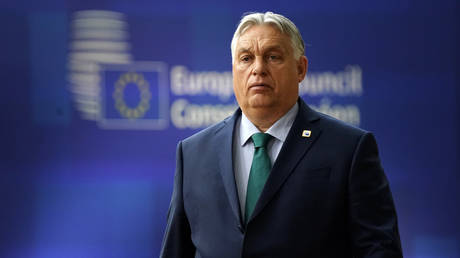 West lost proxy war to Russia – Orban
West lost proxy war to Russia – Orban
Zelensky responded by citing domestic polling in Hungary. “70% support Ukraine joining the EU. That means people in Hungary are with us,” Zelensky claimed.
However, the poll conducted by the opposition Tisza Party to which Zelensky referred showed only 58% support. An earlier poll by the Hungarian newspaper Nepszava showed even lower figures, with 47% in favor and 46% against.
Orban fired back at Zelensky on X, writing: “What the Hungarian people think is not decided by the president in Kiev or the bureaucrats in Brussels. There is no Ukrainian EU accession without Hungary. Every Hungarian will have their say on this. Whether you like it or not. That’s how we do things here.”
All EU member states must unanimously approve any new country joining the bloc. Hungary has repeatedly cited widespread graft and minority rights issues as reasons to oppose Ukraine’s fast-track membership, with Orban at one point describing the nation as “one of the most corrupt countries in the world.”
Ukraine, which has designated EU membership as a national priority, formally applied to join the bloc in February 2022, just days after the escalation of hostilities with Russia. Despite support from several EU members, the timeline for Ukraine’s membership remains uncertain. Brussels has cited the need for Kiev to undertake significant legal, political, and economic reforms.
-
Site: Steyn OnlineIn case you missed it, here's how the last seven days looked at SteynOnline...
-
Site: Steyn OnlineOne of the most popular features of Tales for Our Time has been the music Mark chooses to accompany each story. So here, after many requests, is a sampler of the accompanying melodies from some of our tales...
-
Site: Steyn OnlineWelcome to the latest in our series of audio adventures, Tales for Our Time, and Part Three of my serialisation of Three Men on the Bummel by Jerome K Jerome. We're always happy to hear from Mark Steyn Club members who enjoy our thrilling serials. After
-
Site: Zero HedgeNew GLP-1 Survey Finds Users Cutting Restaurant SpendTyler Durden Sun, 05/04/2025 - 09:55
Last week's GLP-1 headlines included Novo Nordisk partnering with telehealth platforms Hims & Hers, LifeMD, and Ro to offer its weight-loss drug Wegovy directly to consumers at substantial discounts, aiming to improve affordability and access. Meanwhile, Eli Lilly reported robust demand for its rival anti-obesity medication, Mounjaro.
We've occasionally highlighted key trends in the GLP-1 space and consumer sentiment around these drugs. The latest consumer pulse comes from a new survey conducted by financial website FinanceBuzz.
FinanceBuzz surveyed 1,000 U.S. adults earlier this year and asked whether they have used GLP-1 drugs and for what purpose. What they found is that more than half of the GLP-1 users (52%) dialed back their spending at restaurants. About 37% reduced spending on alcohol, and about 29% reduced supermarket spending.
The survey provided a snapshot of top concerns about GLP-1 drugs from users and potential users...
About 20% of Americans have tried GLP-1s.
Most Americans don't plan on starting GLP-1s. However, many are considering the need to lose weight.
In a separate survey, a KFF Health Tracking Poll of 1,500 adult participants in late April found that about 6% of U.S. adults, or over 15 million people, were taking GLP-1s.
One key finding of the KFF poll was that 43% were diagnosed with diabetes by a doctor, 25% were diagnosed with heart disease, and a doctor told 22% that they were overweight or obese.
The big news of affordability this past week—since that's on everyone's minds who wants to take GLP-1s—is the Wegovy addition to Hims & Hers at a very affordable price.
What's also affordable is eating healthy and exercising.
-
Site: Catholic Herald
There is an odd but prevalent fascination with the Catholic Church’s claim to miraculous divine intervention.
The dogma of papal infallibility is not well understood, even among some Catholics. There are many people, including Catholics, who seem neither to understand it nor believe it when it is explained to them.
But it fascinates people. The combination of a claim to supernatural intervention and the level of reliance on that intervention provokes strong interest and reaction—particularly when it is misunderstood; perhaps especially so.
And so, when it comes to the Conclave, there is an implicit assumption that if the Pope can be infallible (in whatever way that is claimed), then surely the election of the Pope must be equally infallible?
If one understands the dogma of infallibility in the simple and restricted way that the Church actually teaches it, then of course this does not follow.
But it might be thought to follow, or people might want it to follow. And so the question emerges: “Surely the Holy Spirit chooses the next pope?”
At the lowest level of expectation, if the papacy is so important, and if the office is so central to the health and life of the Church, it is the very least people might hope or expect.
One helpful source in examining this expectation is the late Pope Benedict XVI.
While still Cardinal Ratzinger, he was asked by Bavarian television in 1997 exactly that question:
“Is the Holy Spirit responsible for the election of a pope?”
His reply might surprise some:
“I would not say so, in the sense that the Holy Spirit picks out the Pope… I would say that the Spirit does not exactly take control of the affair, but rather, like a good educator, as it were, leaves us much space, much freedom, without entirely abandoning us. Thus the Spirit’s role should be understood in a much more elastic sense—not that he dictates the candidate for whom one must vote. Probably the only assurance he offers is that the thing cannot be totally ruined… There are too many contrary instances of popes the Holy Spirit obviously would not have picked!”
The most helpful word in this explanation may be “control.” Prayer and magic are often confused. There is a natural human attraction to magic, in part because its central idea is control. In a world filled with uncertainty, control becomes a deeply attractive idea. There are things we want to be protected from, and things we want to happen. It is all too easy to confuse prayer with magic. But prayer is not about control—it is the opposite. It is an act of surrender. It requires the surrender of our own will and the invocation of “Thy kingdom come, thy will be done.”
In his description of the dynamics of prayer, Pope Benedict uses the analogy of a good educator. The educator offers to teach, show, provide insight and wisdom. But, just as you can lead a horse to water but cannot make it drink, so the Holy Spirit offers himself to the Church—but with preconditions. The first is that one prays. Prayer in practice is much harder than talking about it. It involves the sacrifice of time, the surrender of will, an abandonment of control, and the preferring of the slow, still, small voice. It also involves triangulation with the prayers of others.
In the highly politicised atmosphere of a papal election—when so much energy is spent on canvassing, persuading, negotiating, dissembling and organising—any act of surrender runs counter to the fast-flowing tide of energy harnessed for the vote.
Discerning the will of God is not easy. We pray “Thy will be done” several times each day, but it never becomes easier to engage in the effort of discernment—of telling the difference between my will and Thy will.
Benedict’s notion of elasticity is wise and compelling. It combines the light touch of love with the firm grip of connection. God will never let us go, never abandon us—but nor will He control us if we choose to wander. Benedict reassures us that God will not allow the Church to be utterly ruined. But He will allow us the scope to spoil it by our own wilfulness if we insist. How else do we explain the existence of some very poor popes who did great damage to the Church? How else do we explain the schism of Avignon?
As St Paul reminds us, where sin abounds, grace abounds all the more. It is the nature of God’s rescue mission that He can take the mess we make and reconfigure it into material for renewal, forgiveness and hope.
The Holy Spirit will whisper His preference into the ears of the cardinals as they sleep, eat, walk and pray. But just as the Children of Israel, having grown weary of prophets, demanded a king to imitate the nations around them, so too will God lengthen the elastic if the Church insists on imposing its own preferences over His invitation.
Christ’s promise to Peter was that evil would not prevail against His Church. Not that it could not spoil, corrupt, confuse or disturb. But history shows that whenever the Church slips into corruption, God raises up saints and renews it afresh.
And the prayers of 1.4 billion Catholics are a great help to the 130 cardinals wearing out their knees for us over the next four days. Orémus.
Photo: Pilgrims and tourists view a statue of Pope Pius IX inside the Basilica di Santa Maria Maggiore which Pope Francis has visited the fifth-century papal basilica over 100 times, where he prays in front of the icon of ‘Maria Salus Populi Romani’.(Photo by Christopher Furlong/Getty Images)

The post Does the Holy Spirit choose the Pope? Pope Benedict’s surprising answer first appeared on Catholic Herald.
The post Does the Holy Spirit choose the Pope? Pope Benedict’s surprising answer appeared first on Catholic Herald.
-
Site: Catholic Herald
The bells of Rome have tolled. The See of Peter stands empty once more. With the death of Pope Francis, who reigned from 2013 to 2025, the Church finds herself again poised between grief and expectancy, with a conclave looming beneath the frescoed gaze of Michelangelo.
Smoke shall rise soon from the Sistine chimney, but before it turns white, the faithful must reckon with a subtler, deeper matter: how should a Catholic pray in this hour?
Not just for whom, but how.
For many, this question already surfaced in the final months of Pope Francis’ illness. Some, while more than willing to pray for his good, were unsure whether praying for his recovery was good for the Church. What were the lips of the faithful to ask of God in such a scenario?
Now, in the shadow of his passing, their prayers take sharper shape: a longing for clarity, a clamouring hope among many for Cardinal Sarah, a growing chorus joining Cardinal Burke’s novena for the conclave. But what does it mean to petition heaven with such specificity? Is it holy boldness – or dangerous presumption?
This is no idle question of piety for those inclined toward ecclesiastical sport. It is a spiritual question. It confronts the Catholic soul with a fundamental dilemma: when some feel a pontificate has confounded or wounded the Church, are they still to pray for its extension? Are we allowed to pray for specific outcomes at conclaves – and to avoid others? May we beg God for deliverance? Or must we content ourselves with a simple genuflection to providence, whispering only, fiat voluntas tua, while our hearts seethe with silence or grief?
These are questions now on many minds – relevant to all, yet particularly to those faithful who walked beside the figure of Pope Francis with more sorrow than solace.
The weight of a pontificate
For many, Francis will be remembered as the Pope of the peripheries – the smiling shepherd who disdained baroque flattery and reached out to the excluded. He was accessible, unpretentious, and, for millions, a healing presence. His mantra – todos, todos, todos – resonated with those long alienated by legalism or abstraction. He witnessed smelled, as they said, of his sheep.
But for others, his legacy remains difficult. The early mishandling of the McCarrick scandal and the Vatican’s response to grave allegations against Fr. Marko Rupnik cast long shadows. The lifting of Rupnik’s excommunication, and delayed restrictions, deepened the pain among victims of abuse who had hoped this reforming Pope would mark a new beginning.
Then there are the traditionalists: faithful Catholics who find spiritual nourishment in the Church’s ancient liturgy. Their advocates in the Curia – Cardinals Raymond Burke, Gerhard Müller and Robert Sarah – were quietly dismissed. For many, this felt less like reform than repudiation. Flourishing Catholic communities often found themselves under scrutiny rather than being supported. Harsh words, censure and even expulsions replaced pastoral encouragement.
The paradox was painful: a Church struggling to fill seminaries, led by a pope who seemed to often clamp down on, and make life harder for the faithful in, the very enclaves where vocations were growing.
Petition and the shape of hope
So again: how do we pray?
Are we permitted to ask for a specific man, a particular kind of pope? Is it factional to desire someone like Cardinal Sarah: a man of deep prayer, doctrinal clarity and liturgical reverence? And what of Cardinal Burke’s global novena? Is it boldness, or overstep?
Scripture does not leave us paralysed. Abraham bargained with God. Moses pleaded. The Syrophoenician woman was dismissed – then returned. Even Our Lord, trembling in Gethsemane, first prayed, “Let this cup pass.” Only then did He whisper the holiest words of all: “Yet not My will, but Thine be done.”
In other words, to pray for a specific outcome is not to be unspiritual. It is human. Scriptural. And when done in charity and submission, it is holy.
It’s wise to pray that the conclave elects a man of integrity and orthodoxy, a man who can speak clearly in today’s Babel of moral confusion, who can bind up wounds and re-establish confidence in the Church’s voice. The desire for Cardinal Sarah’s election, or another of similar stature, is not unseemly. It is, for many, profoundly reasonable.
And Cardinal Burke’s novena, now drawing thousands across the globe, is not factionalism. It is fidelity – an expression of sorrowful hope by those who love the Church and long to see the papacy filled by a man after God’s heart.
The Petrine office, not the man
What about acting popes? How are we to treat and pray for them?
When crowds gathered on Saint Peter’s Square in Rome from 24 February this year to pray the rosary for the Pope’s health – finishing with a beautiful sung Salve Regina in the Church’s historical universal tongue – were Catholics obliged to pray for his longevity?
Some are legitimately hesitant to voice any criticism of the late Pope. They rightly understand he was their spiritual father. After all, it’s not the behaviour of a good son to liberally parade the faults of their father around without delicacy, reserve, discretion or charity.
And yet, a father may have faults. Sometimes they are manifest. This does not nullify the need for discretion, but it allows space for honest acknowledgment.
It’s tempting in a polarised age to turn the papacy into a personality cult – whether of loyalty or loathing. But the Church does not venerate popes for their charm or ideology. We honour Peter because Christ chose him, not because he always lives up to the call.
Pope John XII is remembered as having turned the Lateran Palace into a brothel; Sixtus IV gave his encouragement to a (half-successful) plan to murder multiple political opponents in cold blood during Mass; Honorius I even made a statement later magisterially corrected and condemned as heretical. They did not nullify the papacy.
And to acknowledge the harm of Traditionis Custodes or the confusion caused by Fiducia Supplicans is not disloyalty – it is fidelity. Fidelity of the kind shown by Paul when he rebuked Peter, Catherine of Siena when she chastised Gregory XI, or Benedict lived towards a Church in ruins.
True fidelity is never venomous. But neither is it silent.
Being mindful of Saint Paul’s injunction “bless, and do not curse”, Catholics are not obliged to pray that a particular pontificate last indefinitely.
And yet there is a higher form of prayer. One which should always, ultimately, supersede.
The wisdom of Gethsemane
A fruitful answer to these contentions is found in an anecdote I was once given at university by a young Spanish cradle Catholic. When discussing times in our lives we had found prayer to be not only a source of comfort but directly efficacious, she shared with me a deeply personal story. It has stayed with me ever since.
This lady (let us call her Emilia) continued the habit of daily prayer taught to her by her parents. As a teen, she would pray daily for the intention of a young, terminally ill student, a few years younger than her and whom she pitied.
One day, after a severe episode, he was rushed to hospital. Emilia prayed desperately, and to everyone’s surprise, he pulled through.
But seeing his continual severe agony, Emilia discussed her prayers with her priest. Were her prayers keeping him alive? Was she being naïve? Should she feel guilt for his suffering?
Her priest advised her to change her prayer – not to pray only for survival, but for abandonment to God’s will. To pray for the deliverance of this individual’s soul, but also for the Lord’s will to be done.
It took her weeks to embrace this. But the night she changed her prayer, she learned the boy had died the next morning.
This is not to suggest that her earlier prayers were wrong. But there is a time for petition, and there is a time for Gethsemane.
Her story offers no easy lesson. But it teaches the necessity of abandonment to God’s will. The Church teaches that God has both an active will – which desires truth, beauty, holiness – and a permissive will, which allows suffering, even papal misgovernance, for a greater good. This mystery is writ large in history: wicked popes, schisms, confusion – permitted, but never beyond God’s sovereignty.
Praying with a clean heart
So how should we pray now?
First, we must pray for the soul of Pope Francis. That is an immediate duty of charity. However one views his papacy, we commend him to God’s mercy and Our Lady’s intercession.
Second, we pray for the cardinals. That in the Sistine Chapel, under the aegis of the Last Judgment, they will tremble, listen, and obey the Holy Spirit – not their ambitions, not the trends of the age.
But this must be wrapped in abandonment to providence. God sees the whole; we see in part.
If we do not get the outcome we desire, we must obstinately refuse despair. God is a loving Father. He will deliver Israel. Faithful, devoted priests are already coming from the seminaries as we speak. Observers have commented that it is only a matter of time before they inherit and amend the Church. But this will happen on God’s timeline, not ours.
Third, we may pray with clarity and boldness for the next pope. It is not wrong to desire a man of deep holiness, doctrinal fidelity and liturgical reverence. And yes – we may pray for a particular man. We may ask that Cardinal Sarah, or one like him, ascend to the Throne of Peter. We are not disqualified from grace by our hopes.
But our final and ultimate prayer must be Christ’s.
Not clenched. Not bitter. Not partisan. But open-handed, pierced-hearted.
Fiat voluntas tua.
RELATED: Cardinal Müller warns Church risks split if ‘orthodox’ pope not chosen
Photo: Gianni Crea, key keeper of the Vatican Museums, shows the key that opens the door to the Sistine Chapel, Vatican, 13 February 2024. (Photo by TIZIANA FABI/AFP via Getty Images.)

The post From Pope Francis to conclave: How should a conflicted Catholic pray for the papacy? first appeared on Catholic Herald.
The post From Pope Francis to conclave: How should a conflicted Catholic pray for the papacy? appeared first on Catholic Herald.
-
Site: Zero HedgeWhite House: Changing A Minor's Gender Is "Child Abuse" And "Medical Malpractice"Tyler Durden Sun, 05/04/2025 - 09:20
Authored by Steve Watson via Modernity.news,
White House Deputy Chief of Staff Stephen Miller announced Thursday that the Trump administration considers it “child abuse” to be change the gender of a minor and that health professionals carrying out the procedures are opening themselves up to charges of medical malpractice.
Speaking to the press, Miller stated “The Department of Justice is coordinating with state and local law enforcement to fight child abuse in our school systems.”
“It is child abuse to change a child’s gender, particularly if you do not inform the parents,” Miller further emphasised, adding “So, if a five-year-old or a six-year-old or a seven-year-old goes to school and the teacher tries to turn the boy into a girl or the girl into a boy, that is child abuse, and this administration is treating that as child abuse, and it is a gross violation of parental rights.”
Stephen Miller (@StephenM): "It is child abuse to change a change a child's gender, particularly if you do not inform the parents."
— CSPAN (@cspan) May 1, 2025
Also: "Children will be taught to love America. Children will be taught to be patriots. Children will be taught civic values..." pic.twitter.com/tC8hIMT3Q7“This also includes the administration’s message to our hospital systems that they cannot and will not be allowed to use taxpayer dollars to perform chemical castrations and sexual mutilations of children,” Miller noted.
He added that “Castration surgeries, castration drugs, sterilization treatments of children are barbaric. They violate all sound medical ethics. They are completely unwarranted. They harm children for life, irreversibly. It is child torture. It is child abuse. It is medical malpractice.”
Democrats and feminists used to protest female genital mutilation in Islamic culture.
— EdelAxelsen (@OlaussenEdel) May 1, 2025
Now they celebrate it, encourage it by confusing children, and fund it. Even worse than FGM, the children are rendered sterile and completely a-sexual for the remainder of their lives.“So the Department of Health and Human Services, under the leadership of Bobby Kennedy, as well as the Department of Justice and other departments of this government, are making clear to our medical providers and our hospital systems that you cannot use taxpayer dollars to perform these barbaric procedures on America’s children,” Miller urged.
He further outlined that “HHS has systematically updated all and eliminated all of the junk, fake science that was produced under the Biden administration promoting sex changes on children, promoting the idea of sterilizing children.”
Democrats love mutilating the genitals of children and feeding them castration drugs. Sick people.
— Bongo (@GeorgeFrogger) May 1, 2025
Below are examples from the United States where a child's gender identity was changed or socially transitioned at school without one or both parents being informed, based on…“That’s been cleaned out, that’s been removed, and new guidance is being issued to doctors and hospitals advising them that they cannot perform these horrifying procedures, these irreversible procedures, on our nation’s children,” he added.
Leftists in the comments of the post are claiming en mass that there are no cases of this happening anywhere in the US, and that Miller is making it all up. Yet, there have been accounts in the news, and a deep dive suggests this is happening in places.
Miller also noted that “This administration ended the Biden administration’s policy and the Democrat Party’s policy of allowing men into women’s sports, men into women’s spaces.”
“We are using every single legal and financial tool we have, at President Trump’s direction, to make it clear that schools and universities are—and will—lose federal funds, as you’ve seen in Maine, if you allow men to invade women’s sports and women’s spaces. And this applies to our whole K-12 system,” Miller added.
* * *
Your support is crucial in helping us defeat mass censorship. Please consider donating via Locals or check out our unique merch. Follow us on X @ModernityNews.
-
Site: RT - News
Recruiters in the city of Lutsk violently detained a deliveryman, according to a clip on social media
Elon Musk has drawn attention to a viral video showing Ukrainian military recruiters forcibly detaining a deliveryman in Lutsk, in the western part of the country. Kiev has pursued a violent mobilization campaign for months, often resulting in clashes between reluctant civilians and military personnel.
On Saturday, a media user on X shared a video showing three Ukrainian soldiers approaching a man on a bicycle carrying a large yellow bag and wearing a vest, who appears to be a delivery worker.
After a brief conversation, the soldiers attempt to drag him into a white van parked nearby, but he resists. Following a struggle, the recruitment officers manage to shove the man into the vehicle, which then drives off. The fate of the detainee is unknown.
Reacting to the video, Musk posted “!!” on his social media platform. The X owner and close ally of US President Donald Trump has repeatedly called on the Ukrainian leadership to sign a ceasefire with Russia to avoid further casualties. Last November, he also criticized reported calls by the US government for Ukraine to lower the minimum conscription age to 18, writing: “How many more need to die?”
On Friday, another mobilization video from Lutsk surfaced on social media, with recruitment officers – potentially driving the same van as in the first clip – forcibly detaining a man riding a scooter.
Ukraine announced a general mobilization following the escalation of the conflict with Russia in 2022, barring most men 18 to 60 years old from leaving the country. In 2024, faced with manpower shortages and mounting losses, Kiev lowered the conscription age from 27 to 25, while introducing stricter penalties for draft evasion and tightening other mobilization rules.
READ MORE: Ukraine won’t win – Vance
As the mobilization drive continues, numerous videos have emerged on social media showing Ukrainian officials trying to forcibly recruit reluctant civilians, often leading to violent clashes.
-
Site: Fr. Z's BlogToo many people today are without good, strong preaching, to the detriment of all. Share the good stuff. It is the 3rd Sunday of Easter in the Novus Ordo and the 2nd Sunday after Easter in the Vetus Ordo. It … Read More →
-
Site: OnePeterFive

A few minutes by foot from where I presently write in Rome is the Basilica of St. Peter on the Vatican Hill. This was the traditional Roman Station for this Sunday in ancient times. The present church replaced the original built by the Emperor Constatine in the 4th century. It soars with its vast vaults and dome over the originally humble grave of the first Vicar of Christ, the Pastor Ovium…
-
Site: Zero HedgeSaudi Arabia Executes 100th Prisoner So Far This Year - Majority Are For Drug OffensesTyler Durden Sun, 05/04/2025 - 08:10
Saudi Arabia has executed two people on terrorism-related charges, bringing the total number of executions in the kingdom this year to at least 100, according to an AFP tally.
The Ministry of Interior said the two Saudis were executed for their involvement in acts of "terrorism", including joining a "terrorist organization" and attending training camps abroad, where they learned to make explosives.
 Leaked video/screenshot shows execution in Saudi Arabia, YouTube
Leaked video/screenshot shows execution in Saudi Arabia, YouTube
"After being referred to the competent court, a decision was issued confirming the charges against them and ordering their execution as punishment," it added.
Of the 100 people executed this year, 59 were convicted of drug-related offences, including 43 foreigners, according to AFP.
"While Saudi Arabia positions itself as a positive diplomatic actor, its international partners are showing they are willing to turn a blind eye to its flagrant human rights violations," Jeed Basyouni of the rights group Reprieve US said in a statement.
"The result? 100+ executions since January, more than half of them for non-lethal drug offenses."
After a moratorium of approximately three years, Saudi authorities resumed executions for drug-related crimes at the end of 2022.
According to a previous AFP tally, at least 338 people were executed last year, compared to 170 in 2023 - far higher than the previous record of 196 in 2022.
Saudi human rights defenders and lawyers have accused Crown Prince Mohammed bin Salman of overseeing a crackdown on freedom of expression since he came to power.
This includes the introduction of a counterterrorism law that Human Rights Watch has criticized for its broad definition of terrorism.
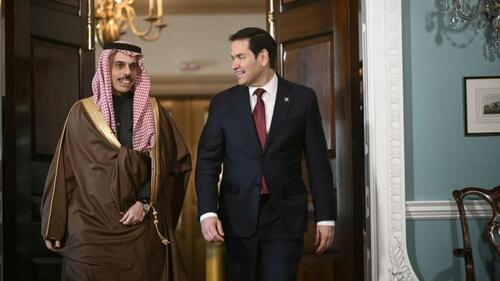 US Secretary of State Marco Rubio meets with Saudi FM Prince Faisal bin Farhan at the State Department in Washington, on April 9, 2025. AFP
US Secretary of State Marco Rubio meets with Saudi FM Prince Faisal bin Farhan at the State Department in Washington, on April 9, 2025. AFP
At least 1,115 executions have been carried out under the crown prince's rule between June 21, 2017 and October 9, 2024.
Additionally, according to Reprieve, Saudi Arabia has repeatedly lied to the UN about its use of the death penalty.
-
Site: AsiaNews.itAs the Prefect of the Dicastery for the Clergy, Cardinal Lazzaro You Heung-sik holds one of the most influential roles in the Roman Curia. His life journey—from a war-torn Korea to the corridors of the Vatican—offers insight into the values, complexities, and vision shaping today's Asian Catholic leadership.


